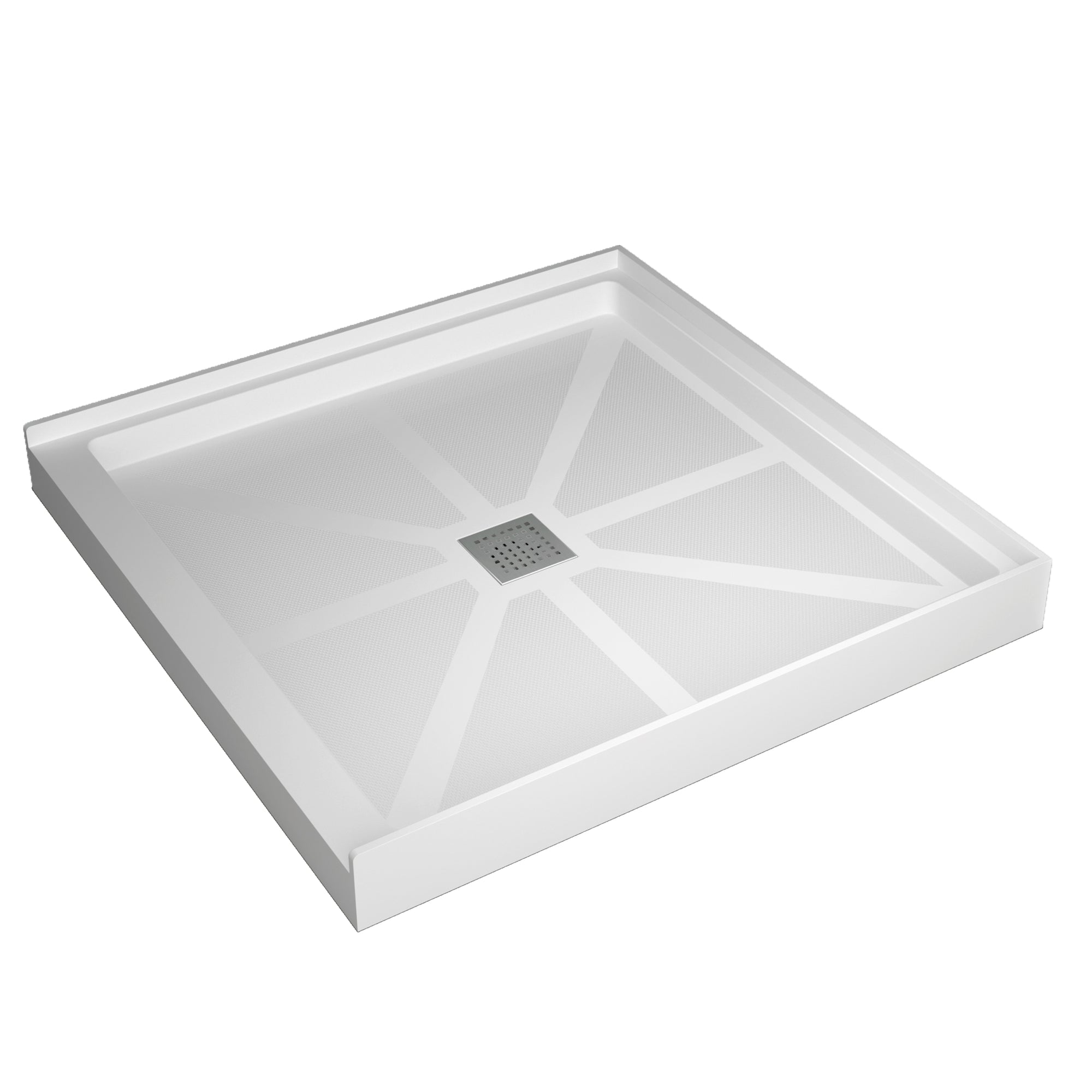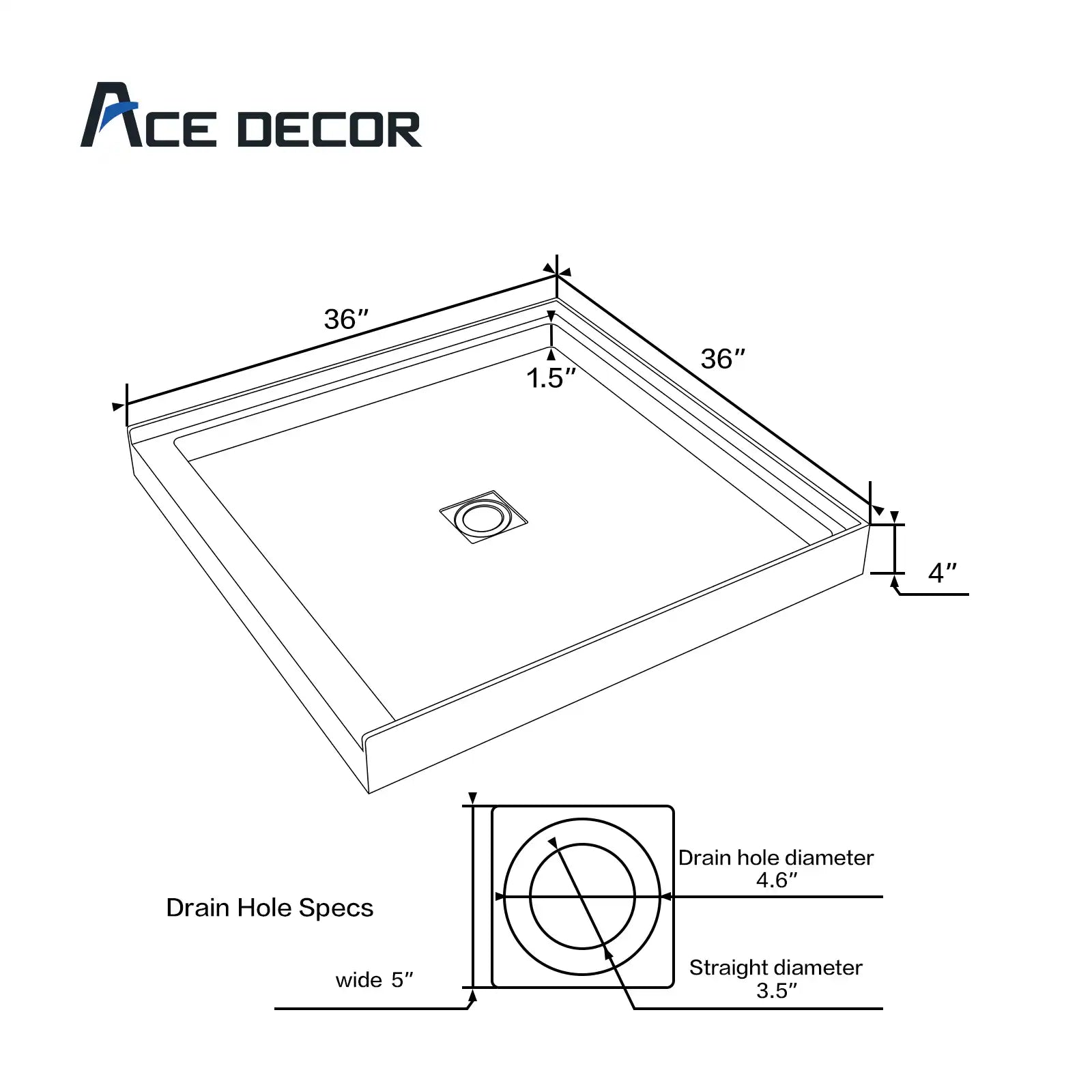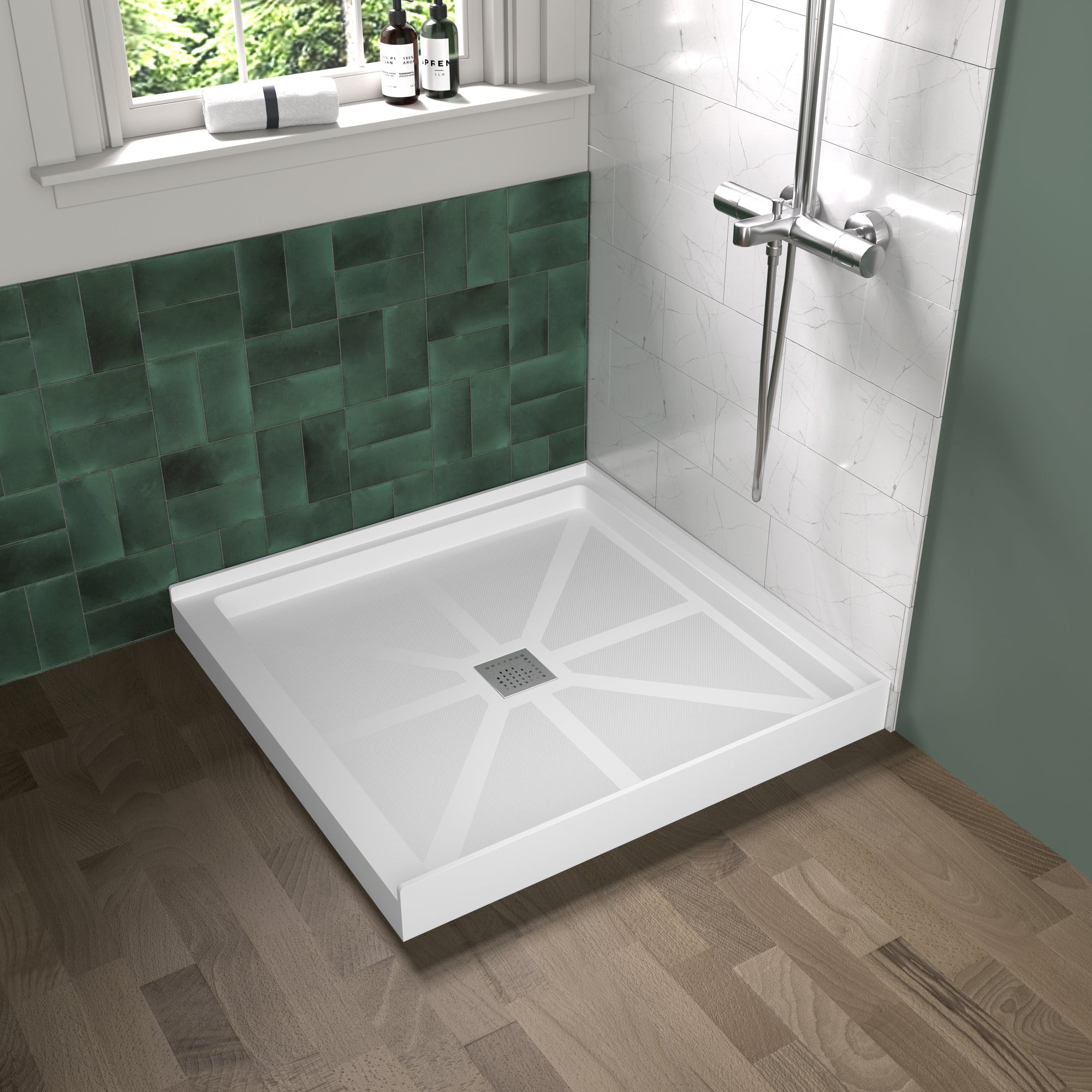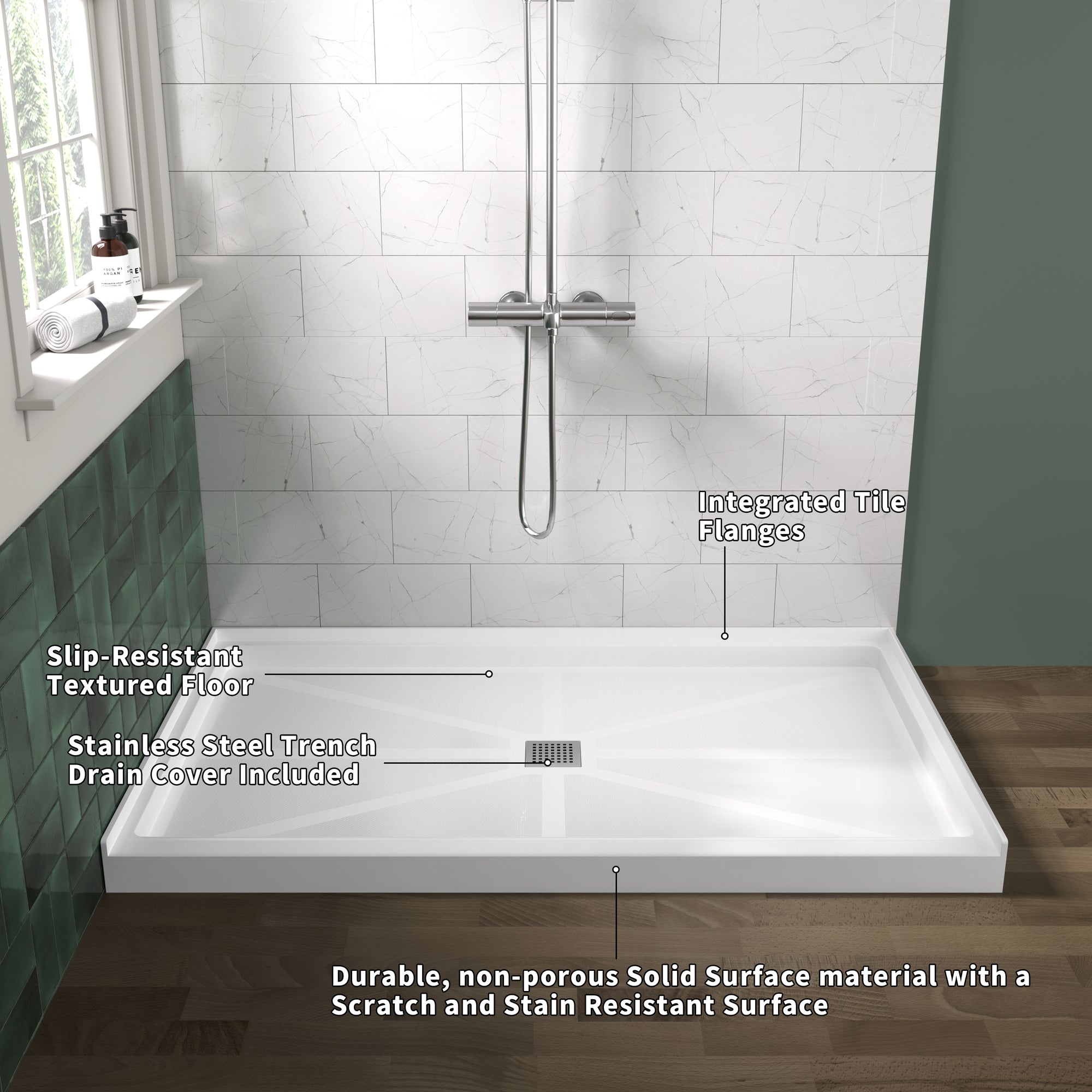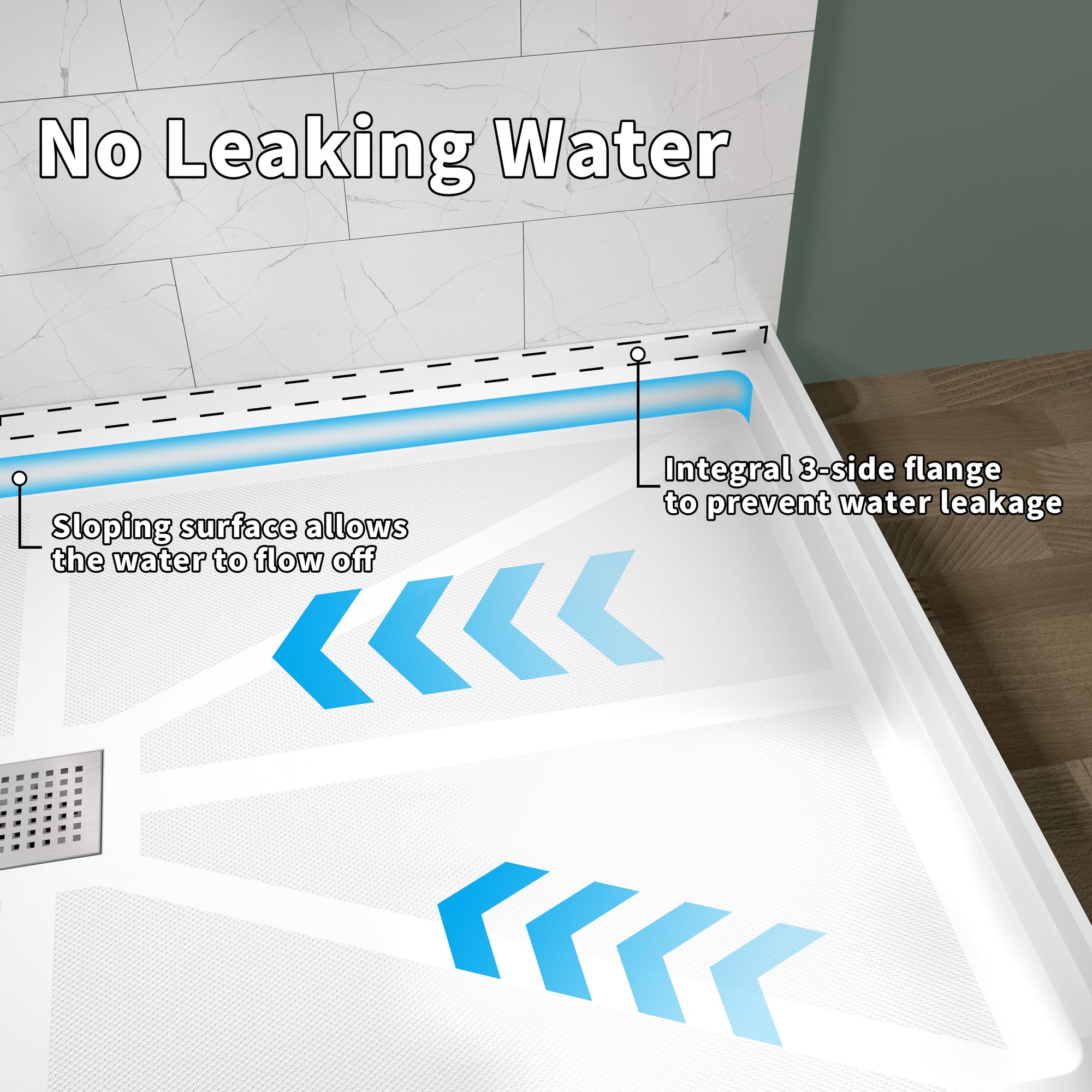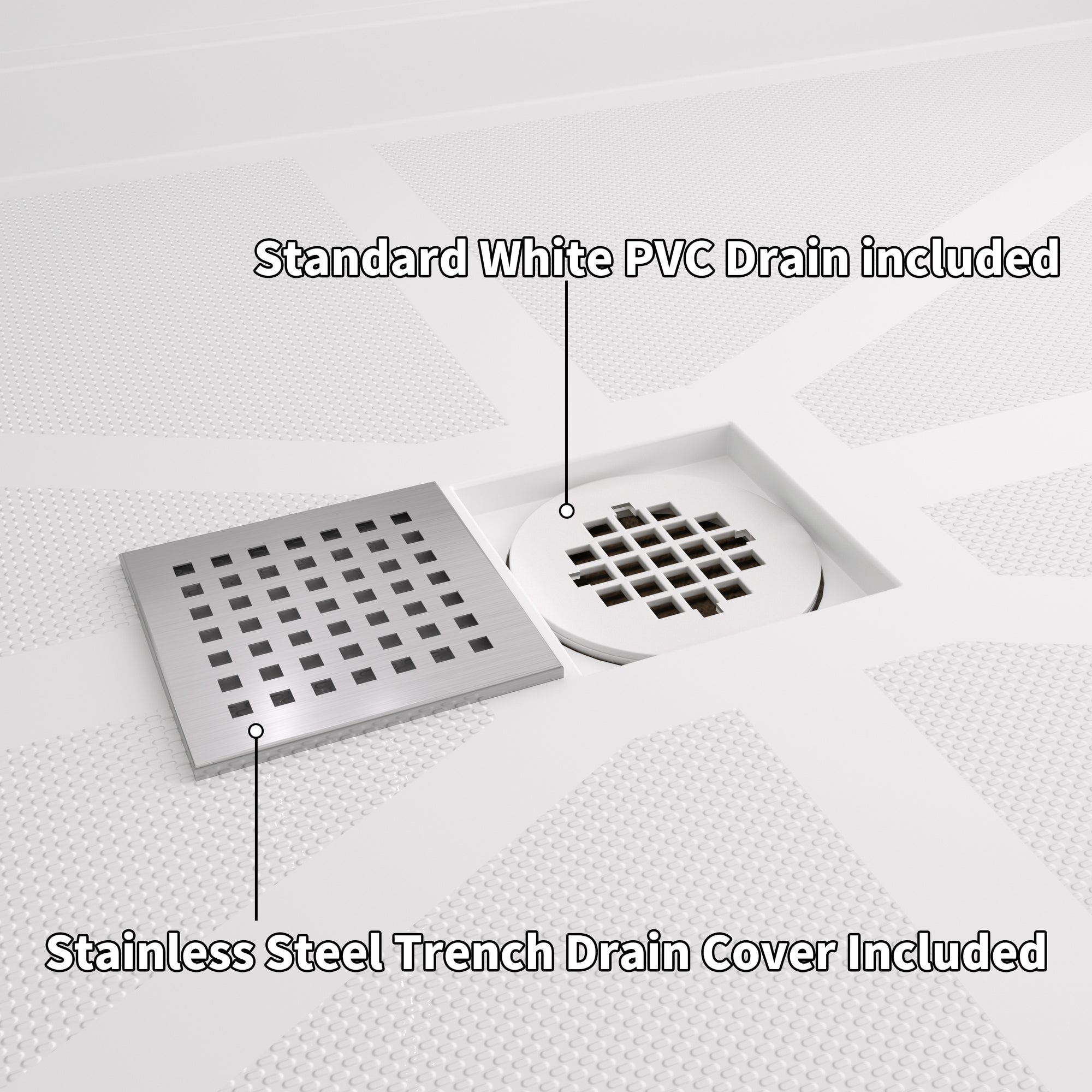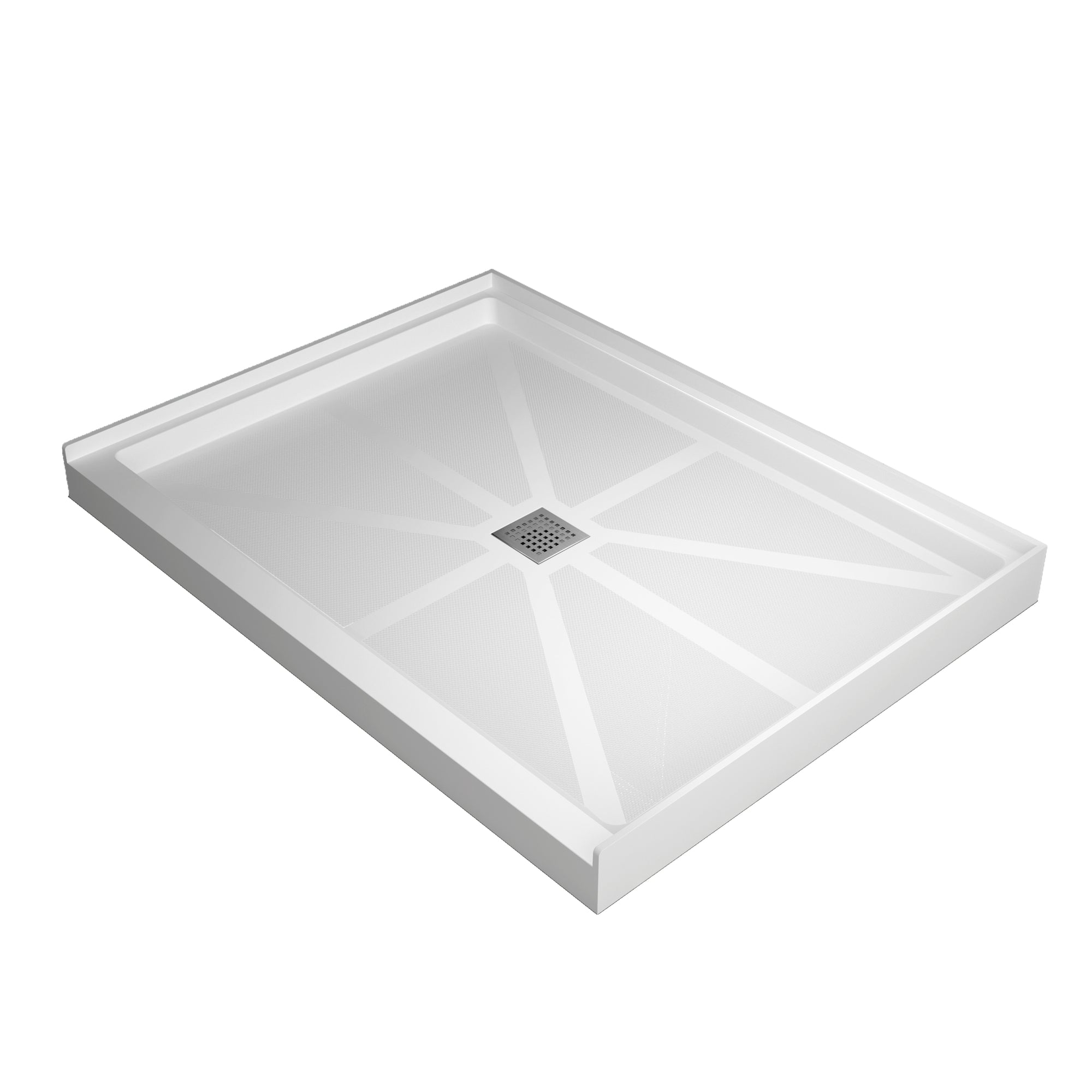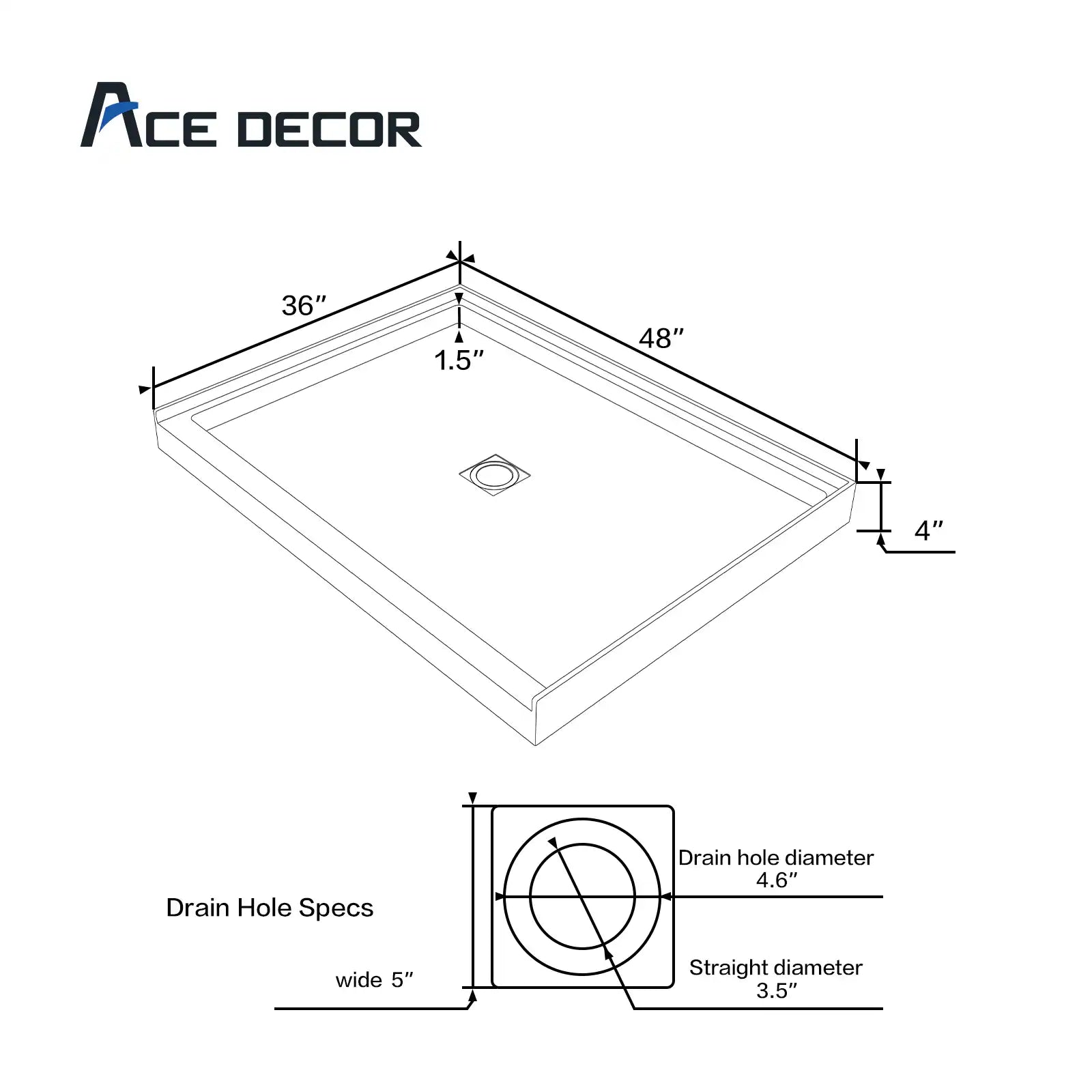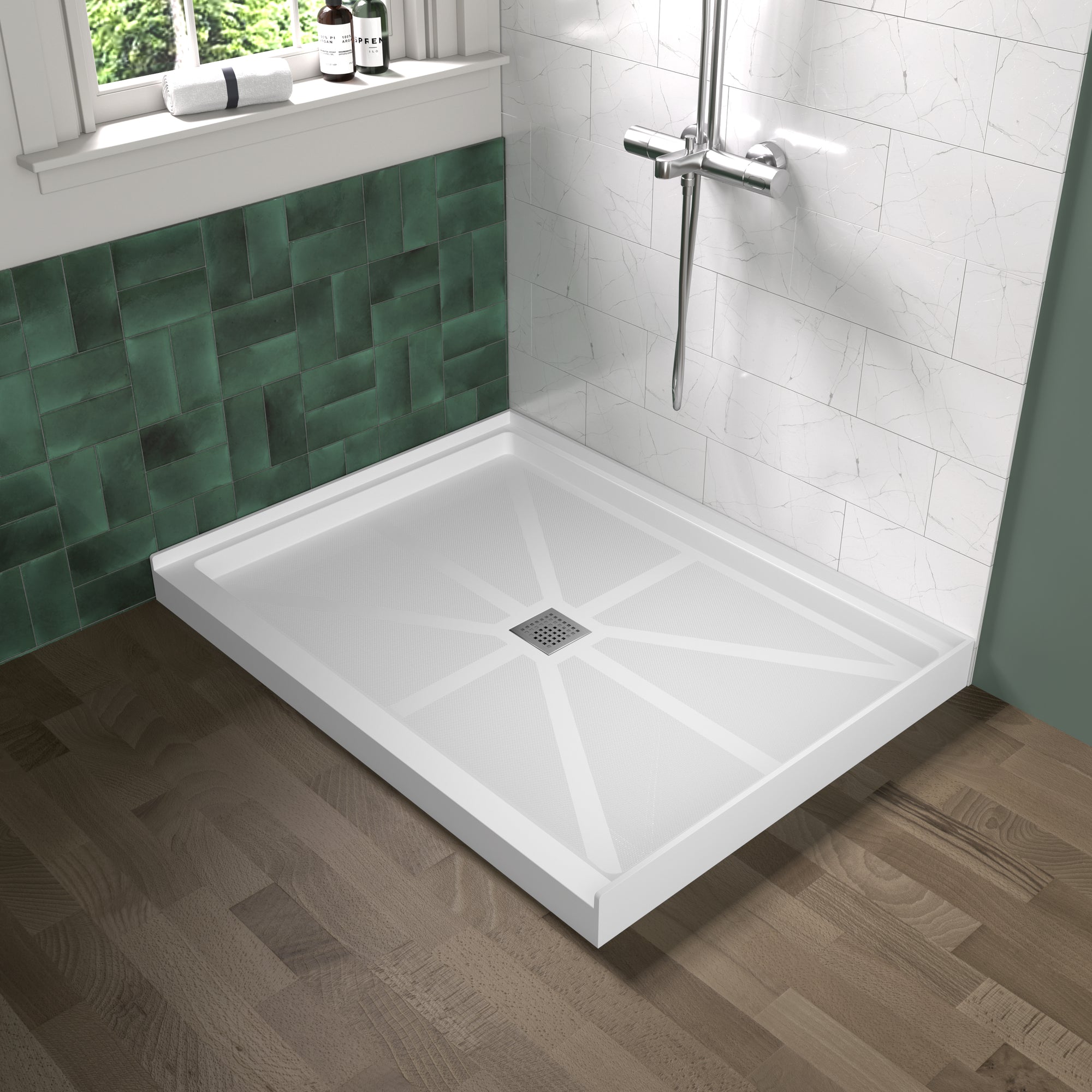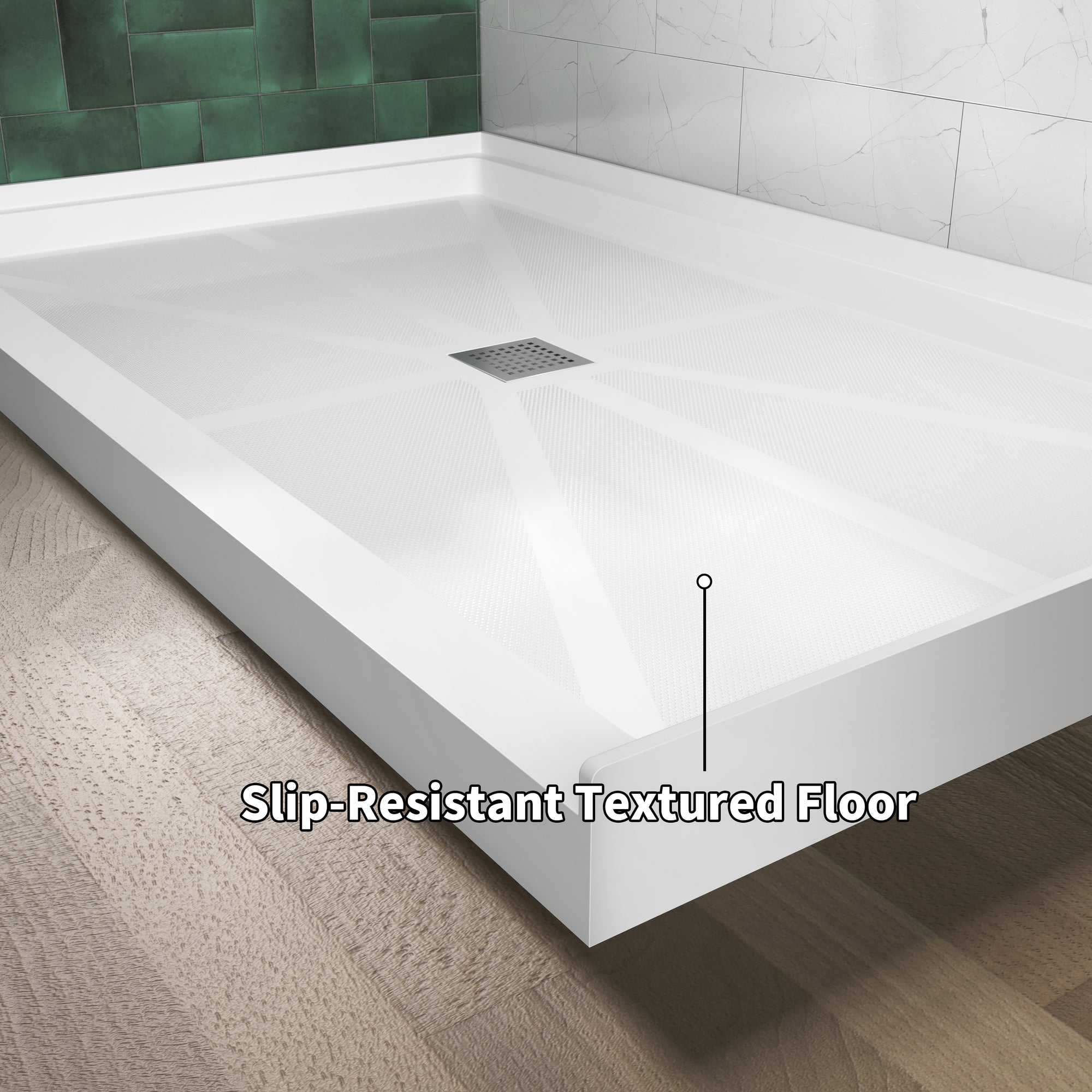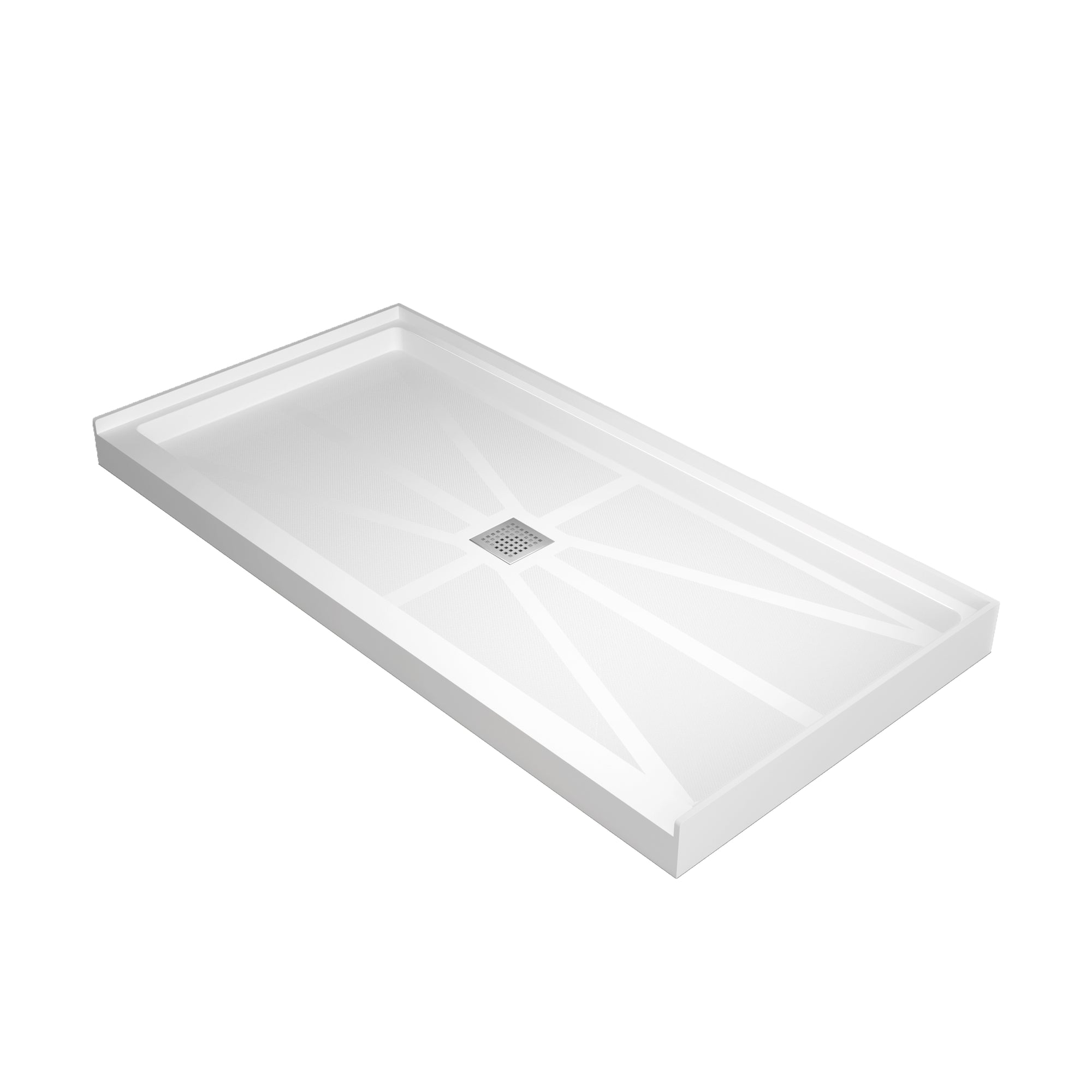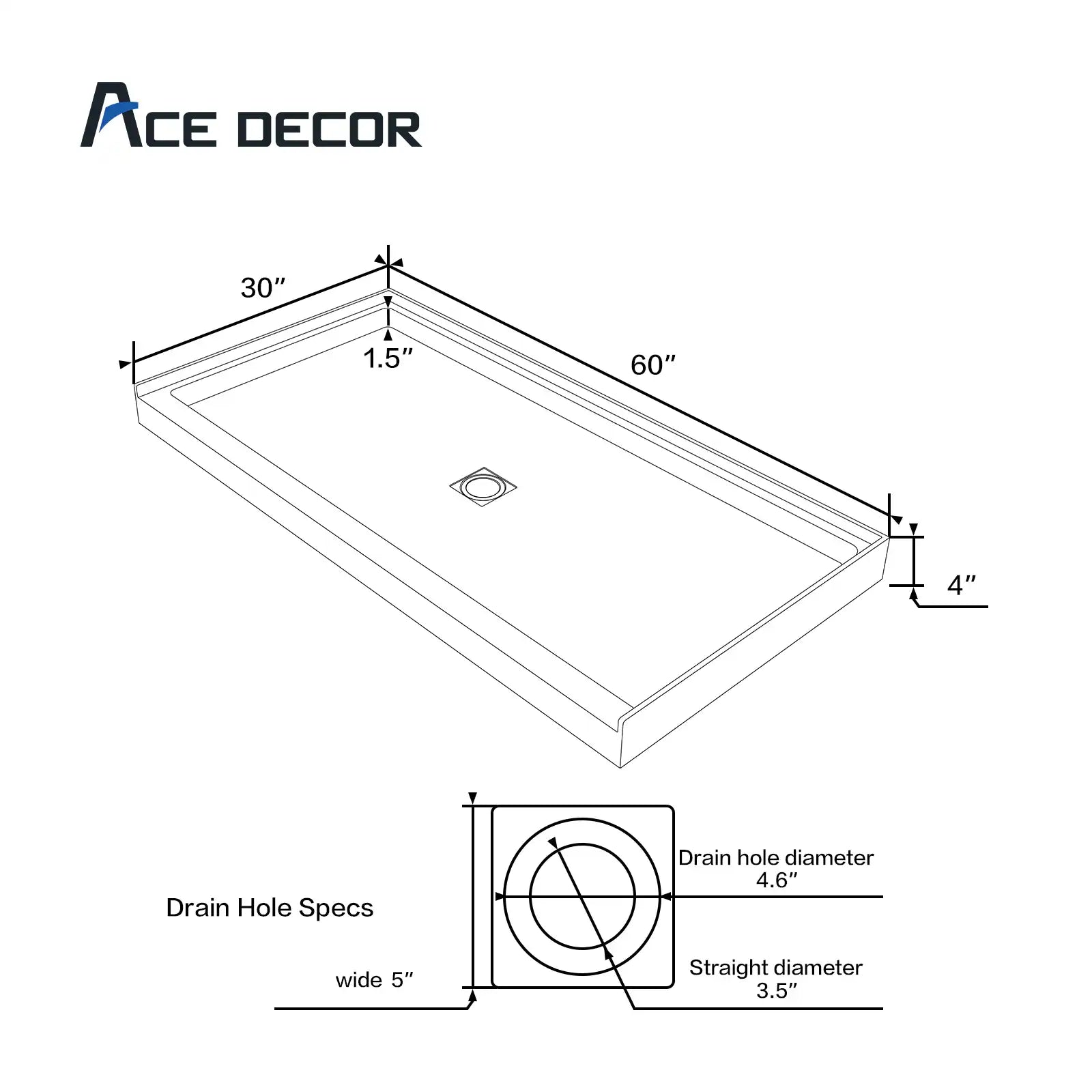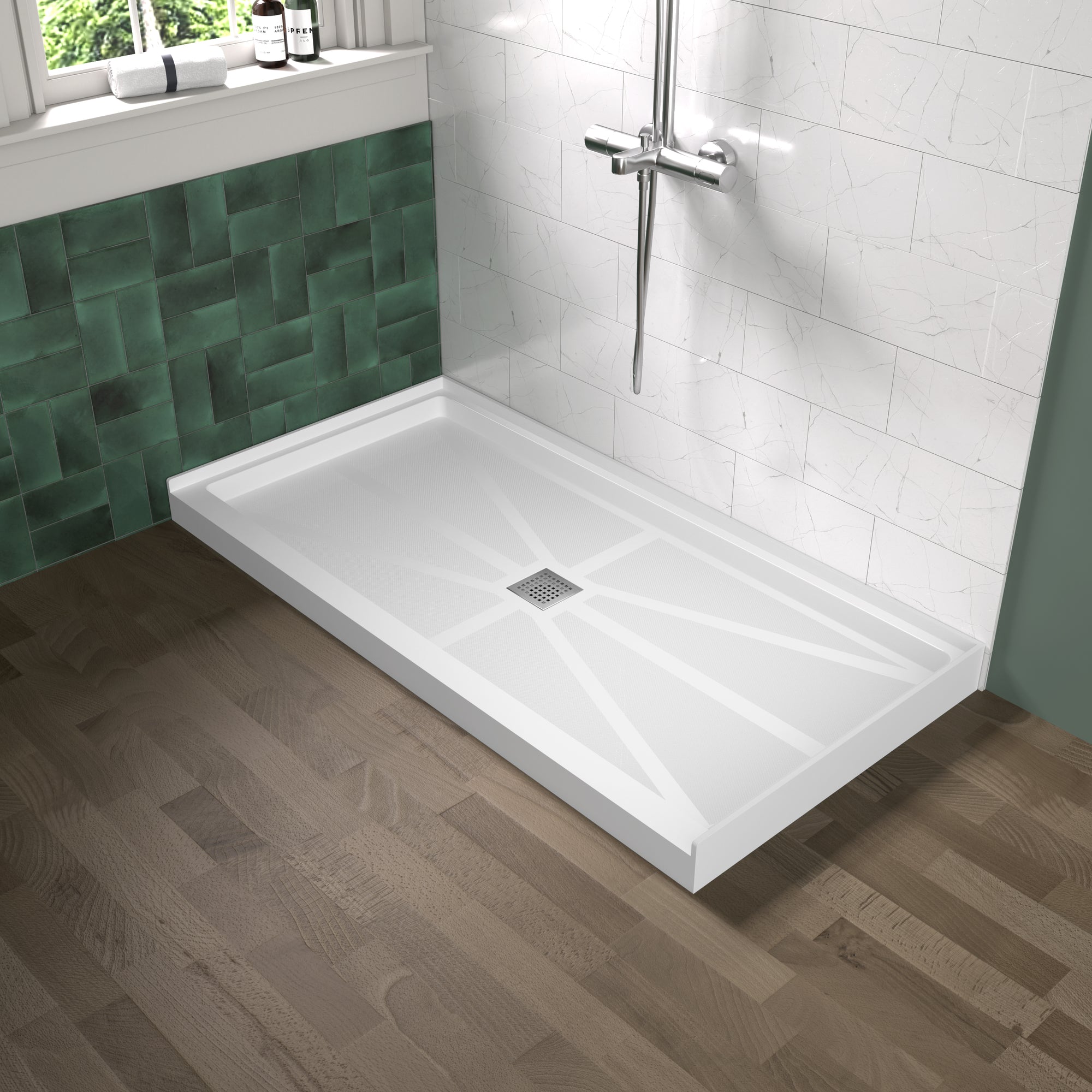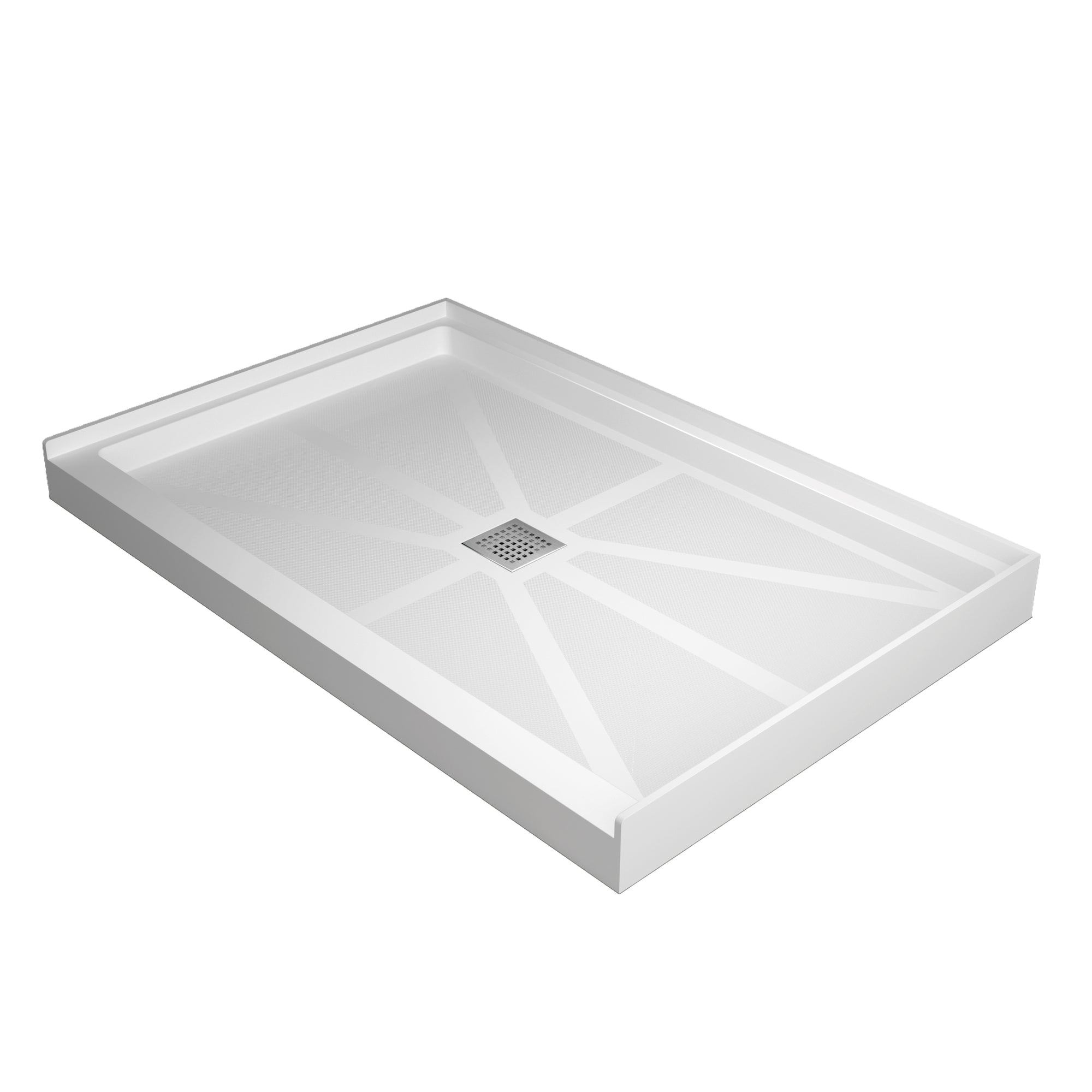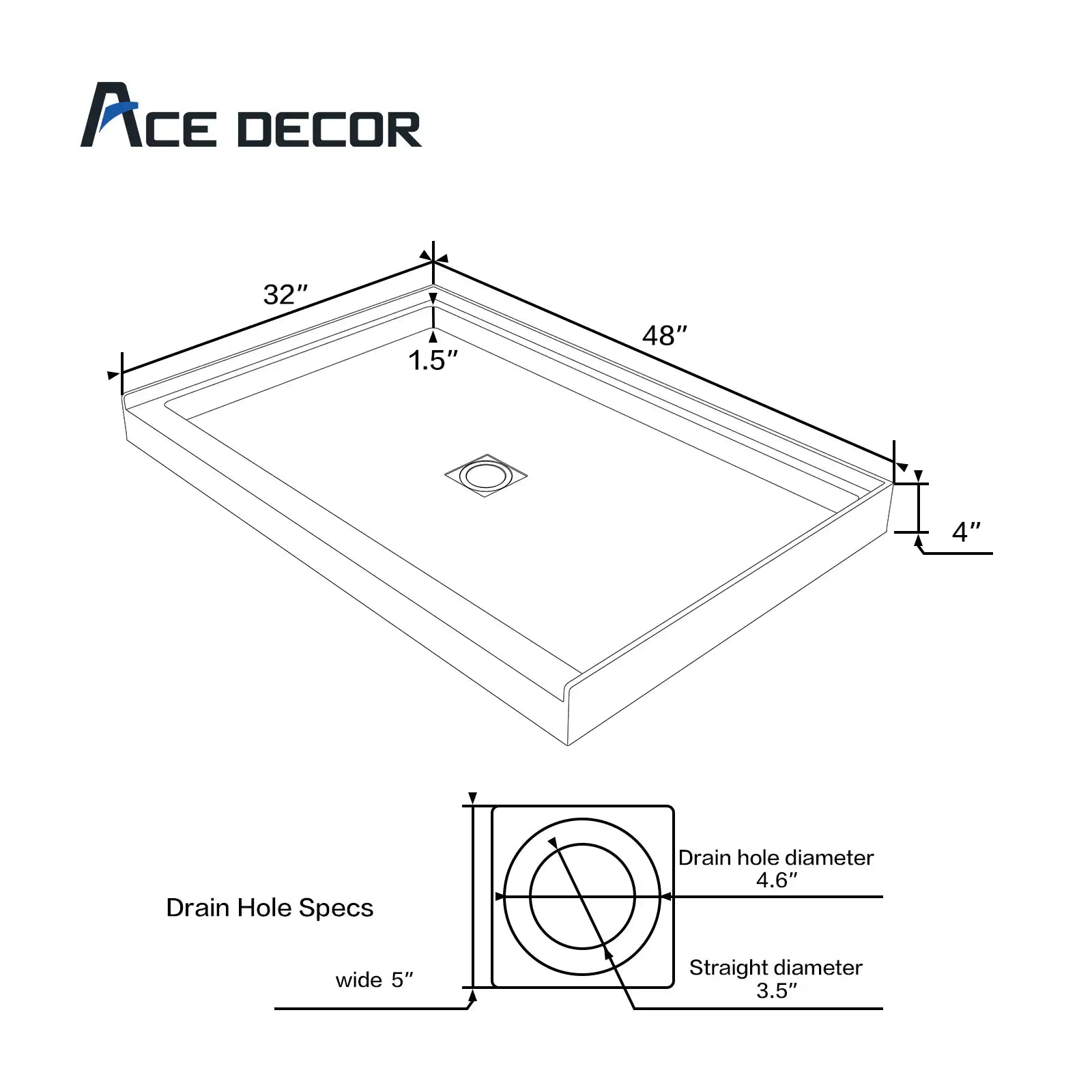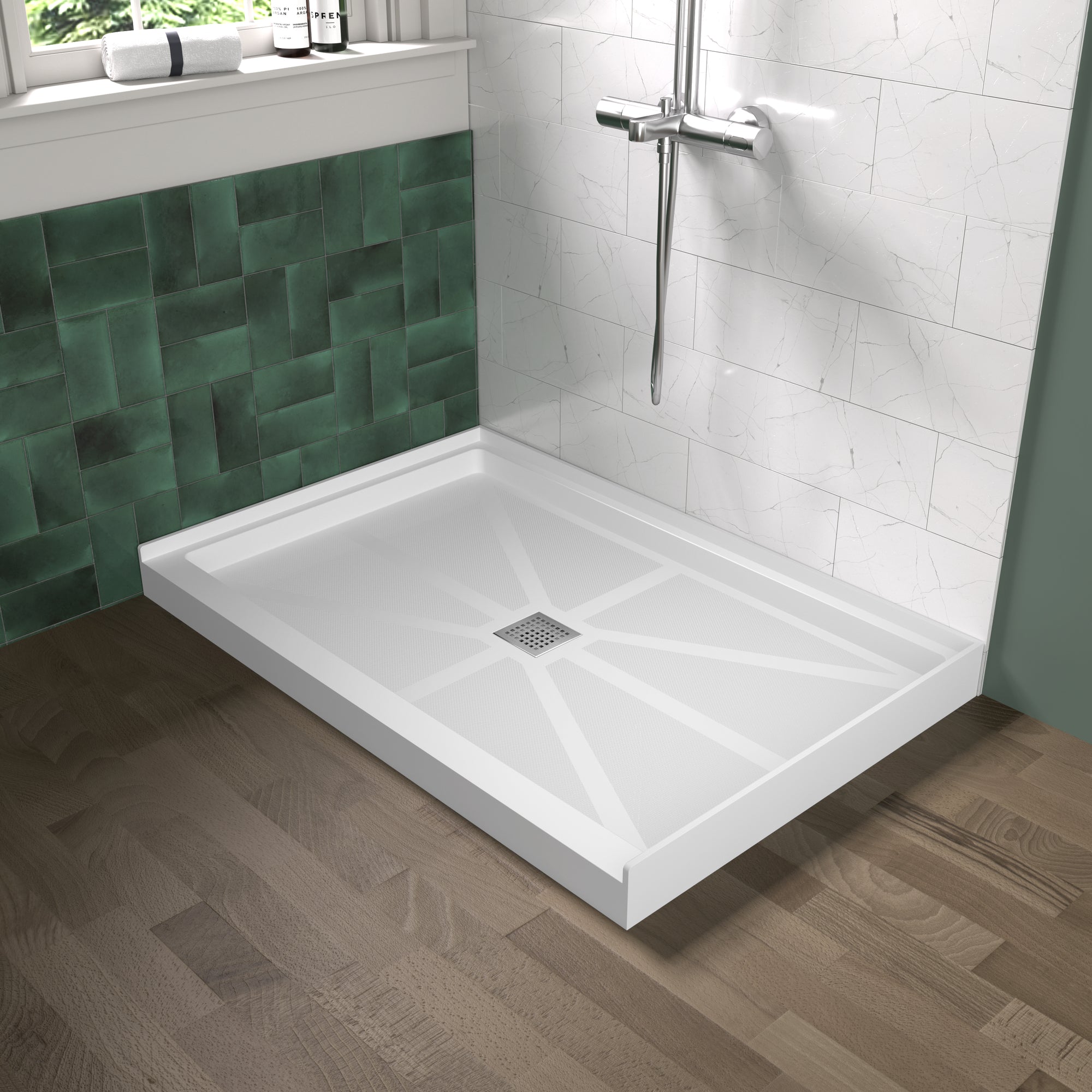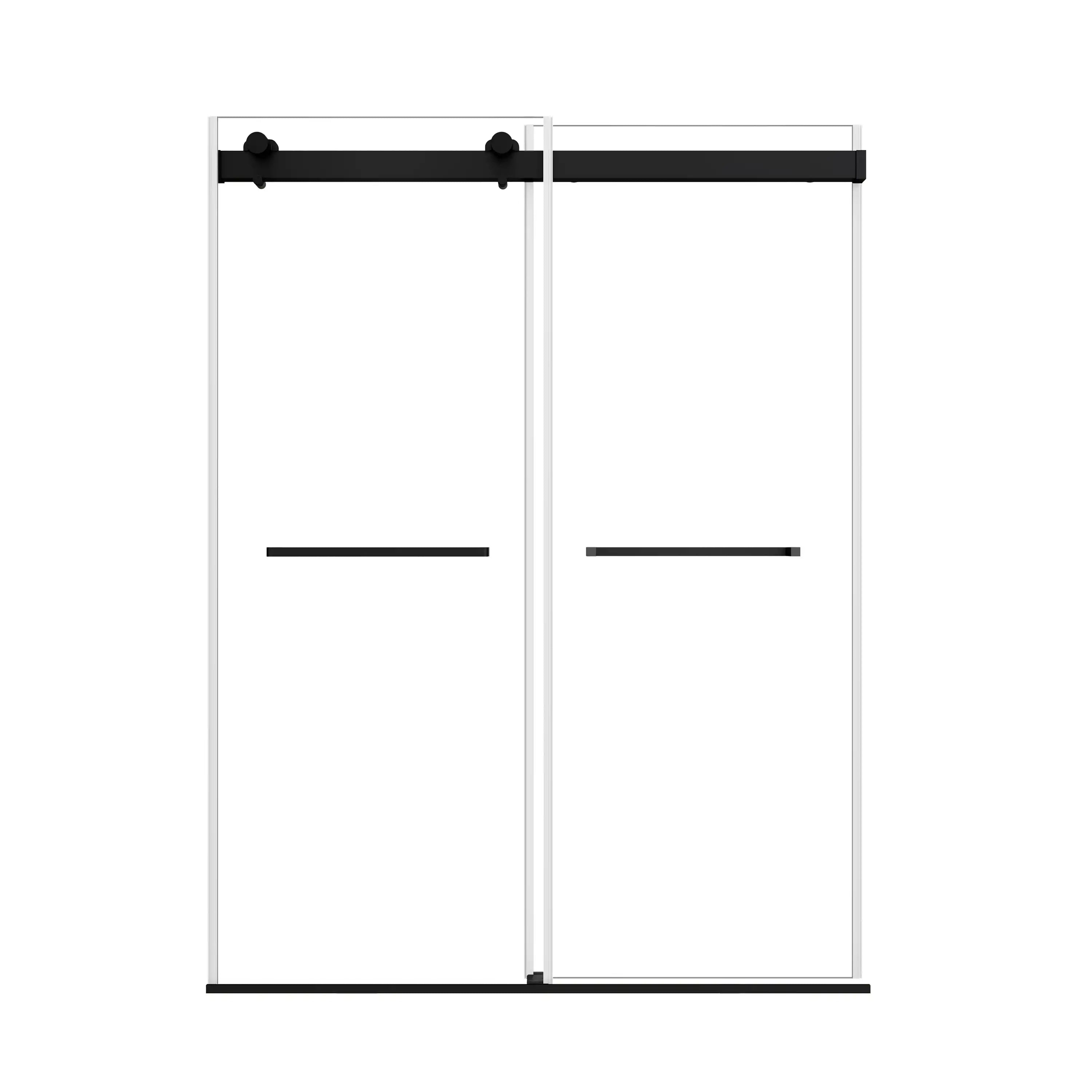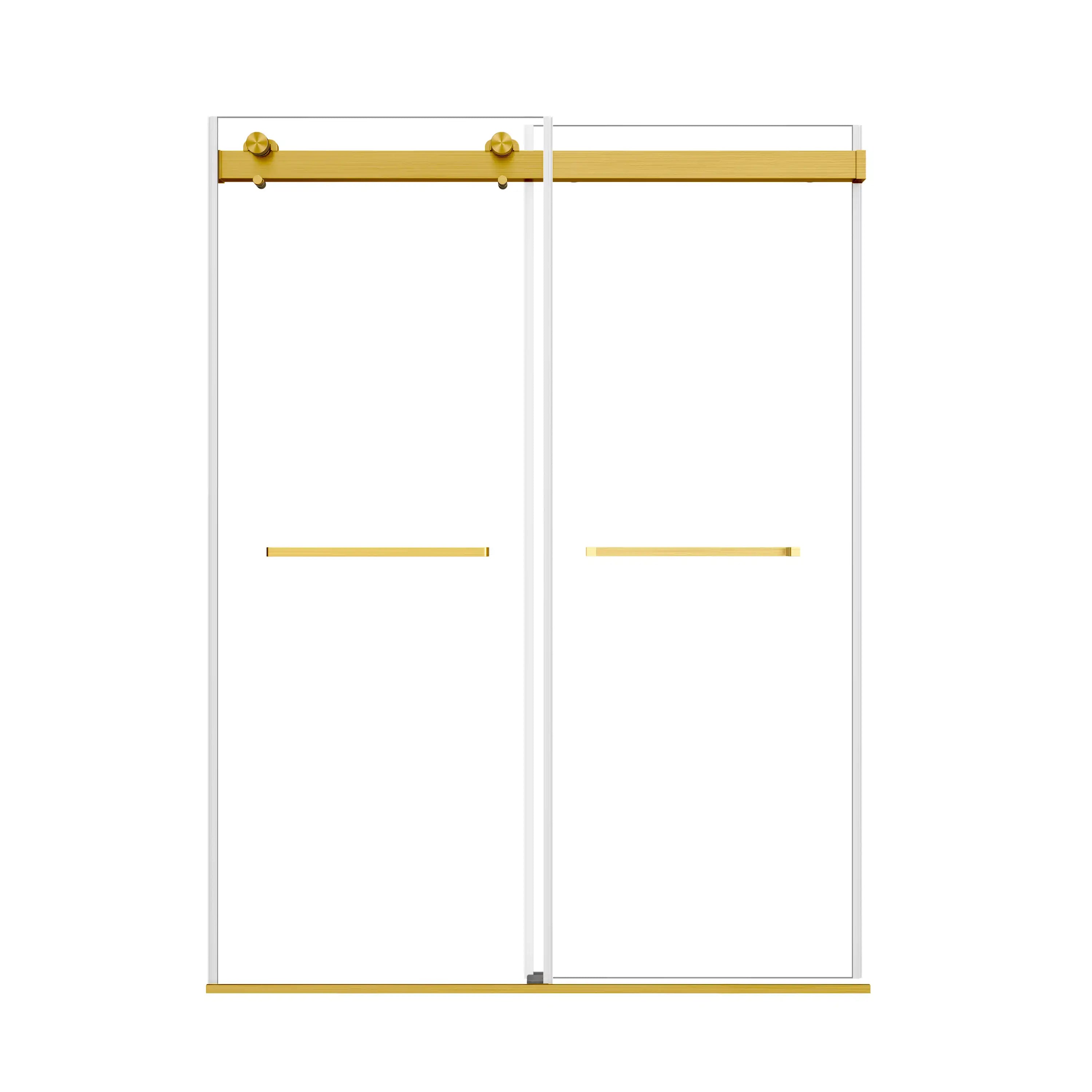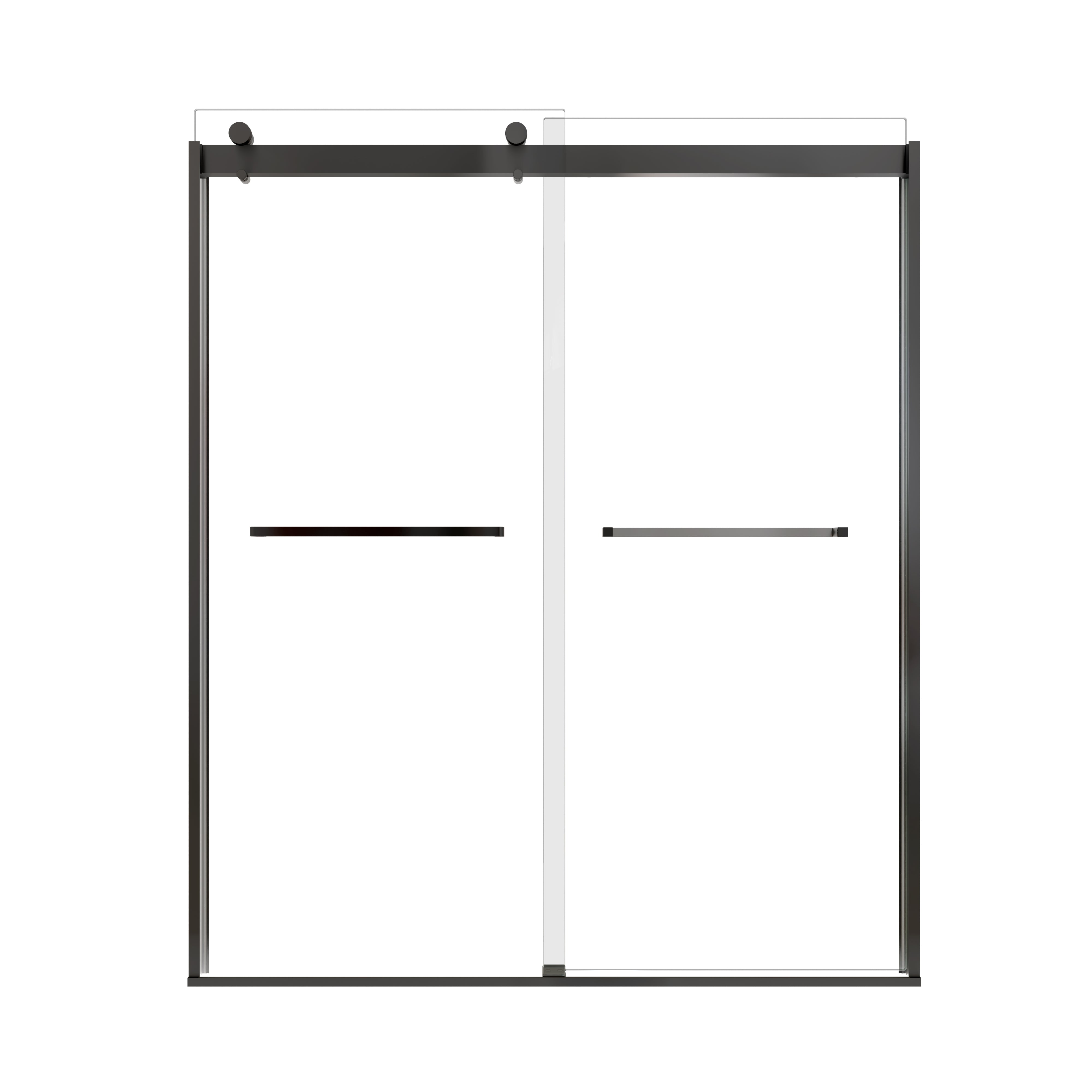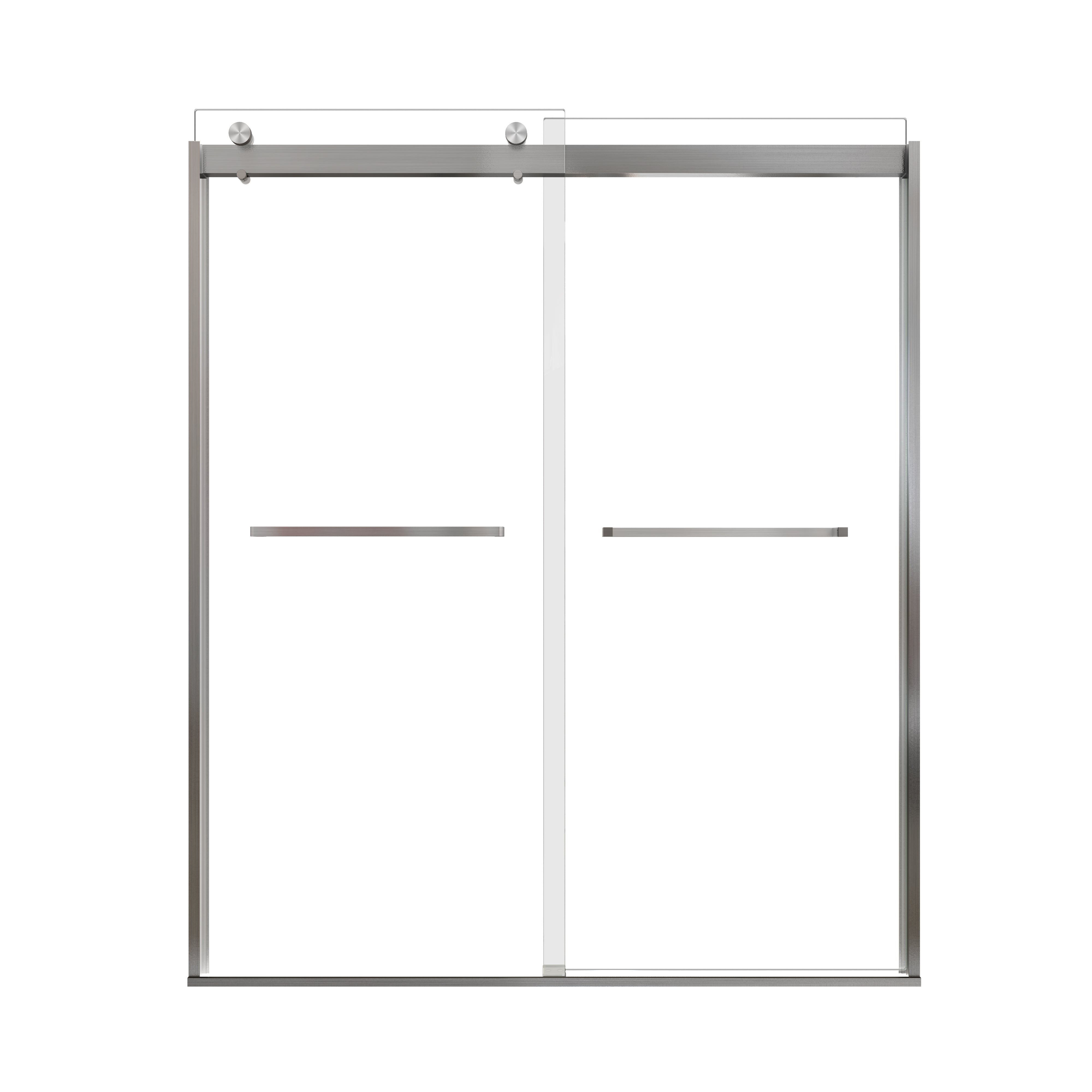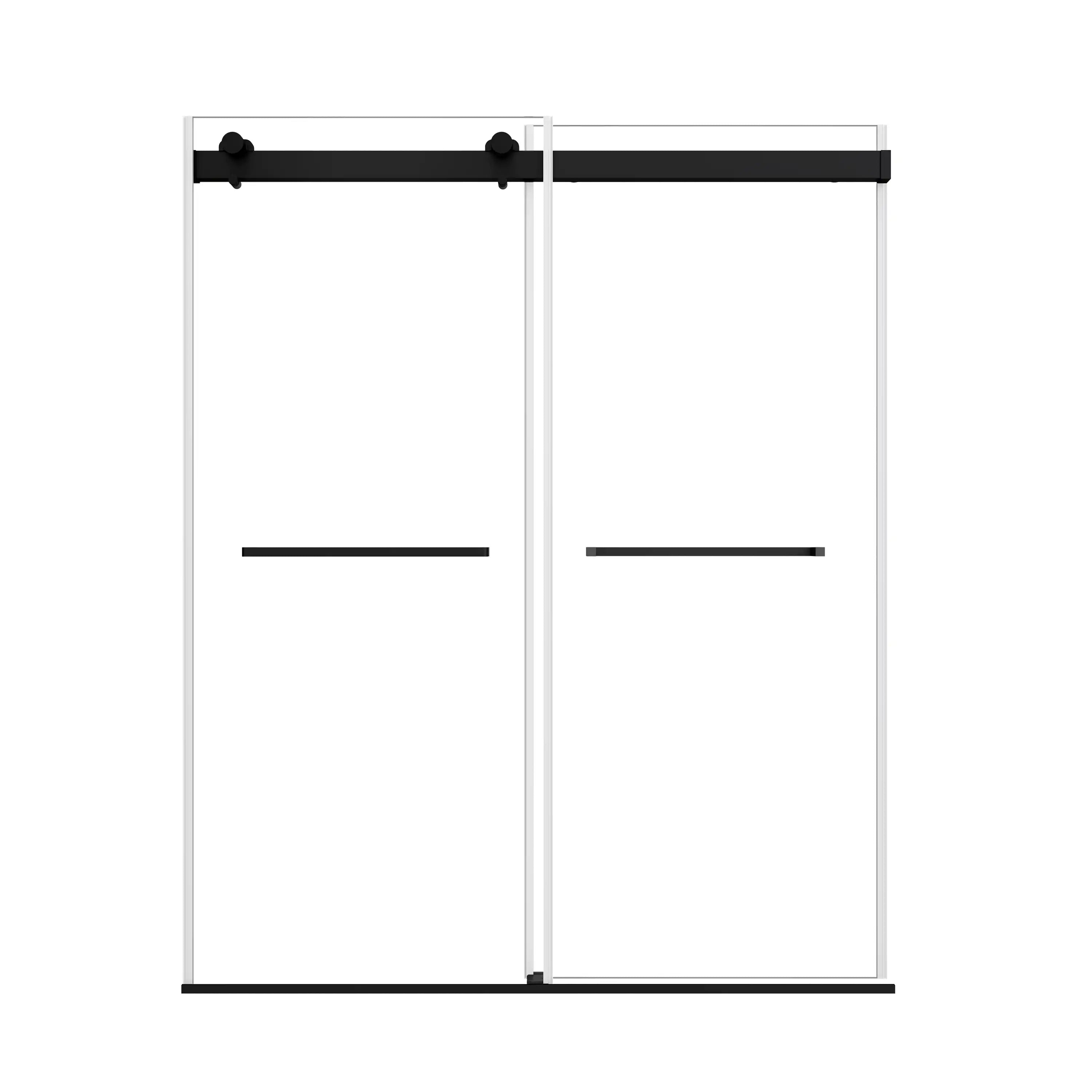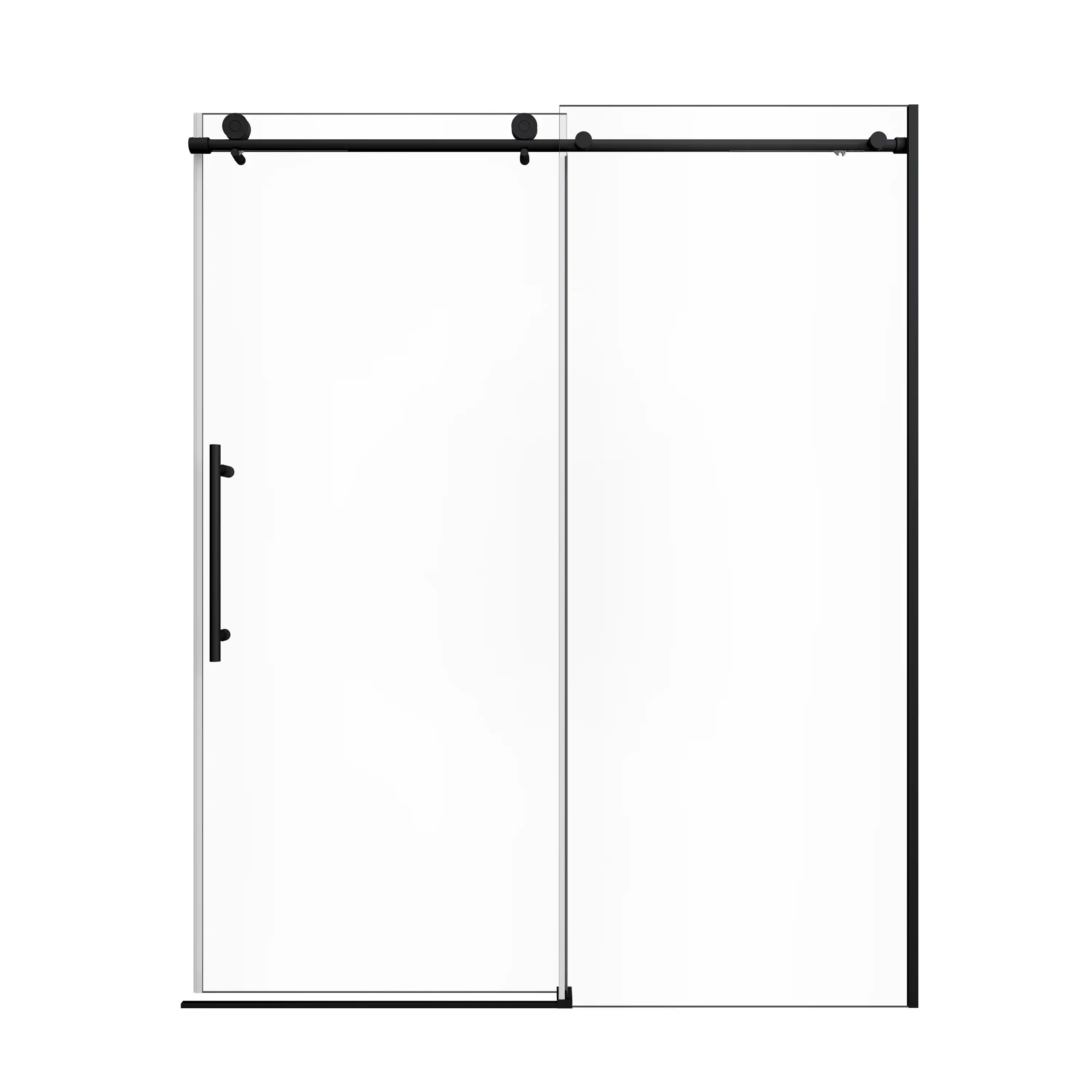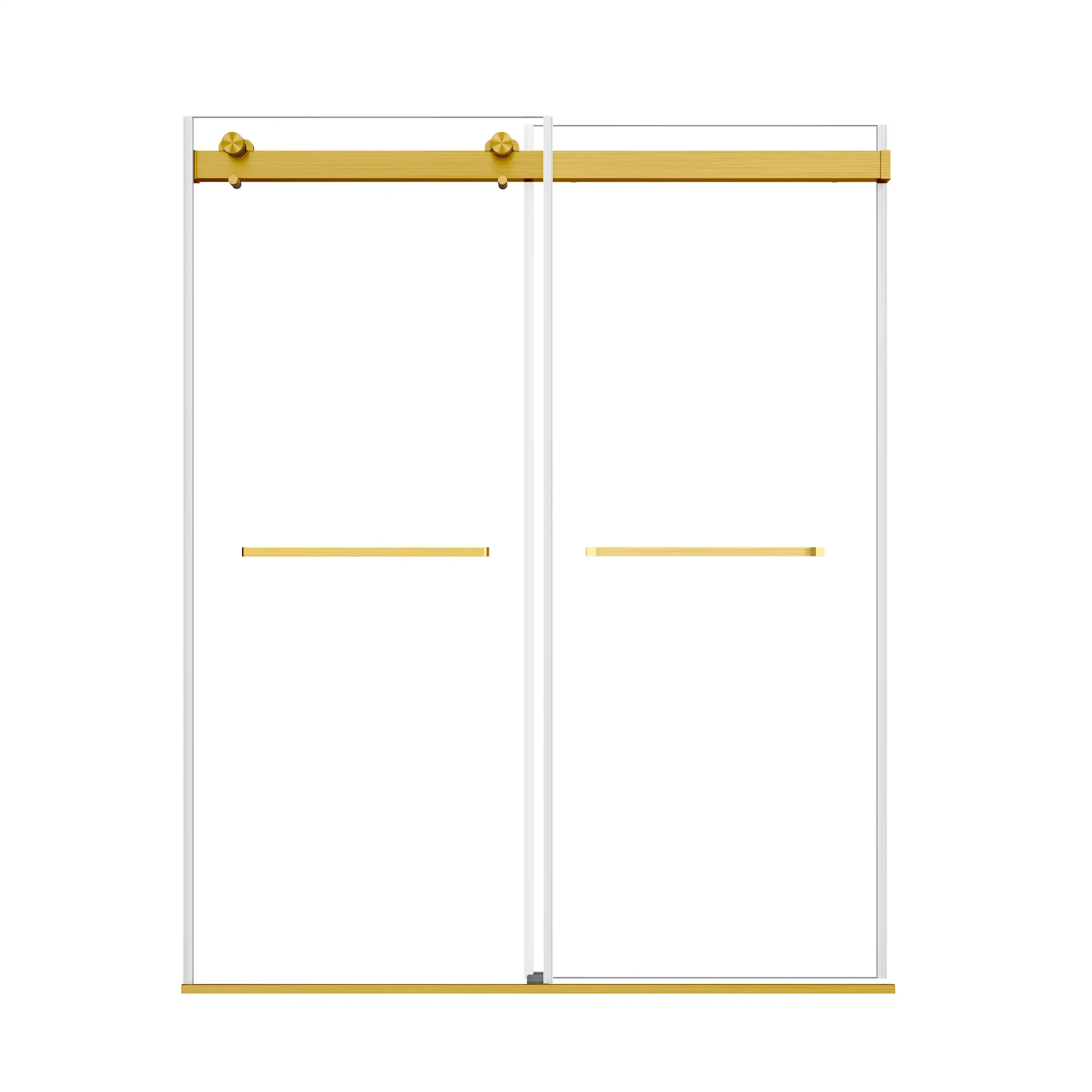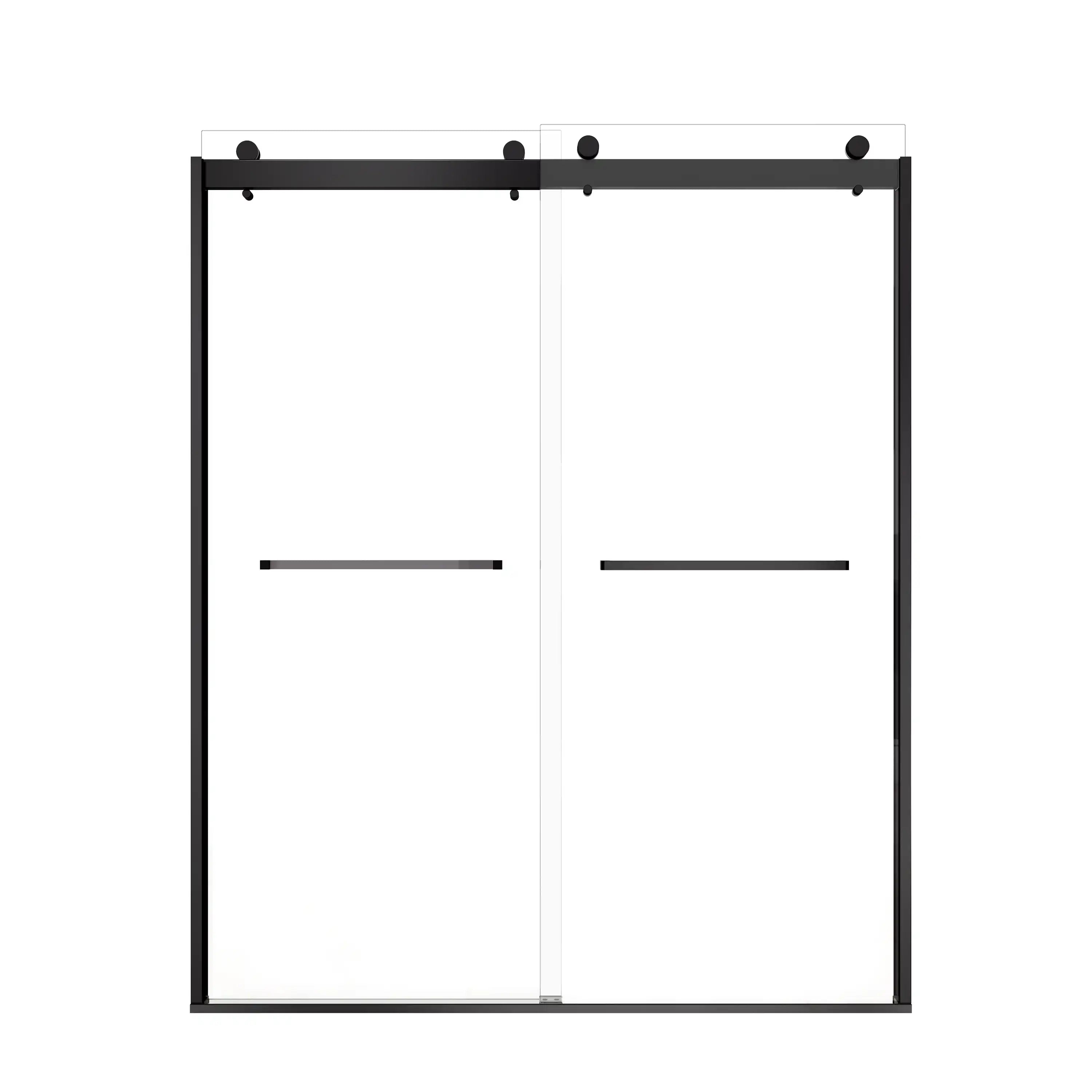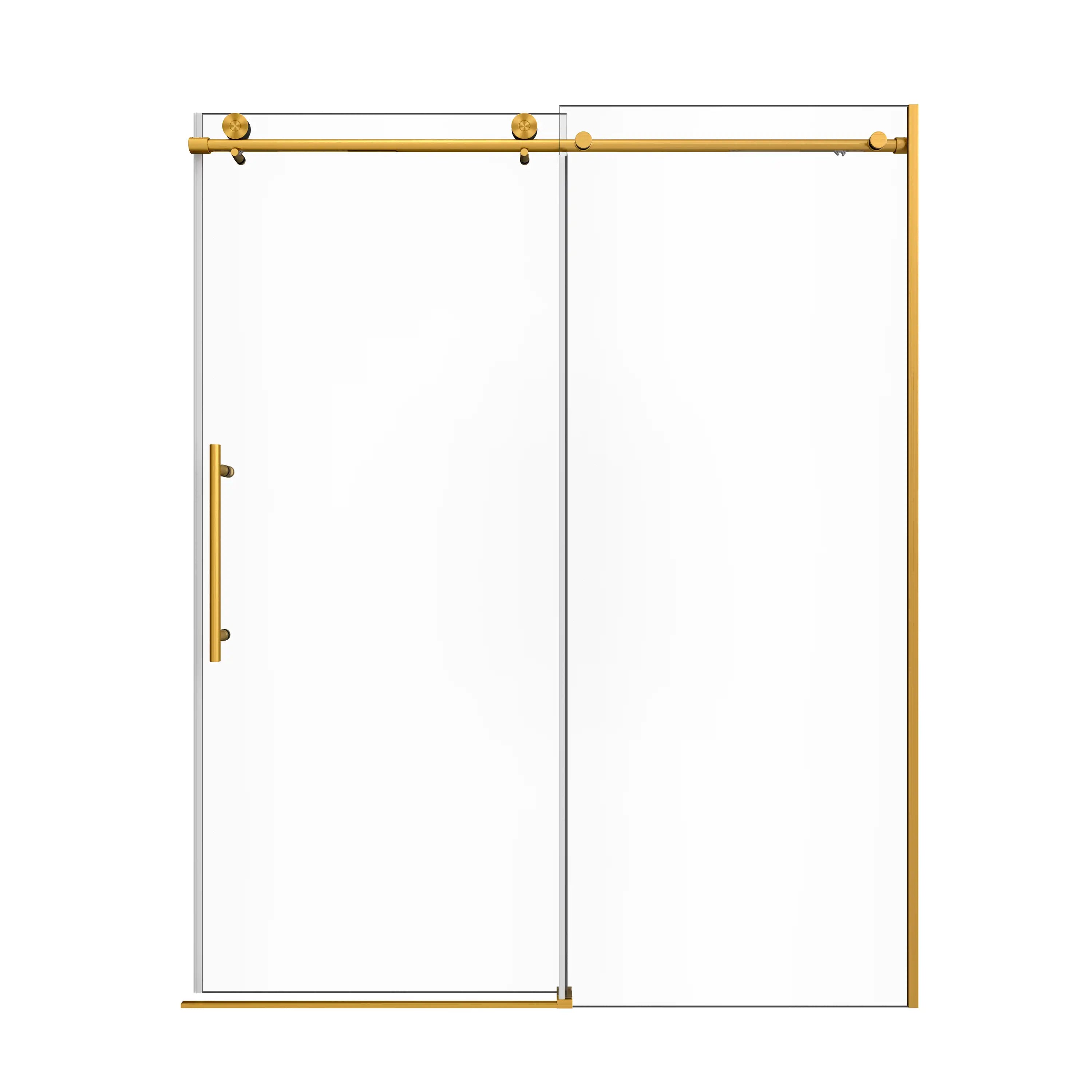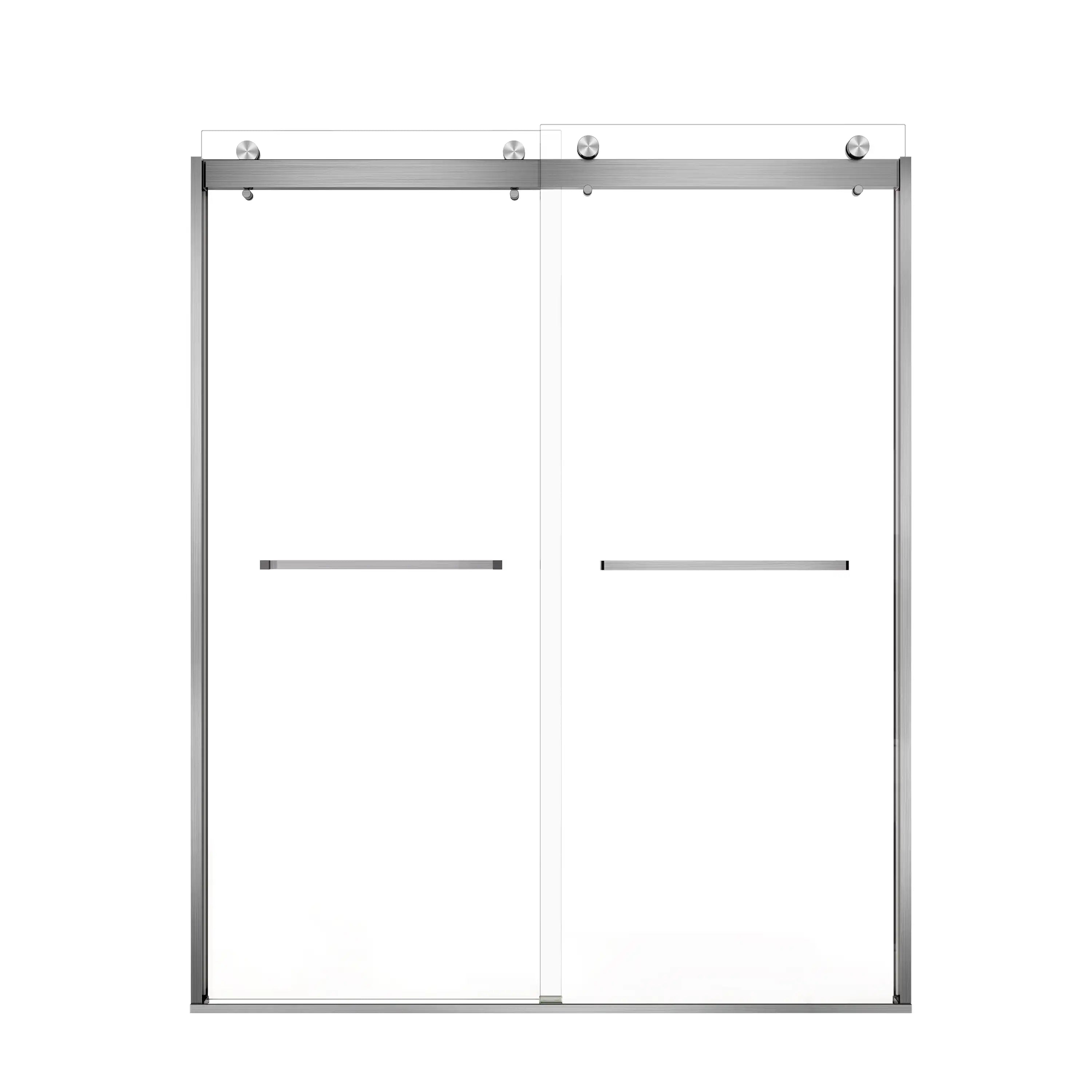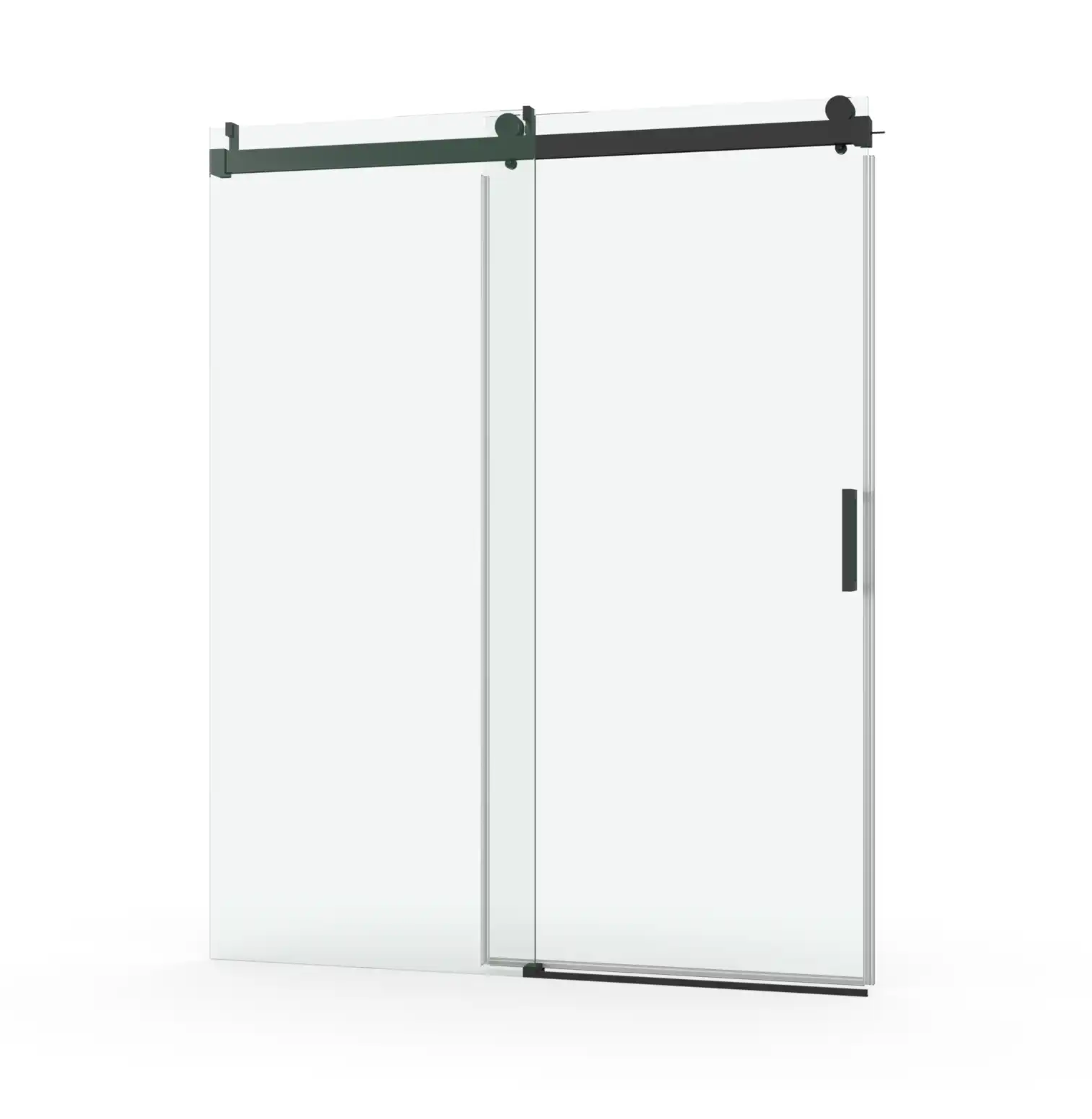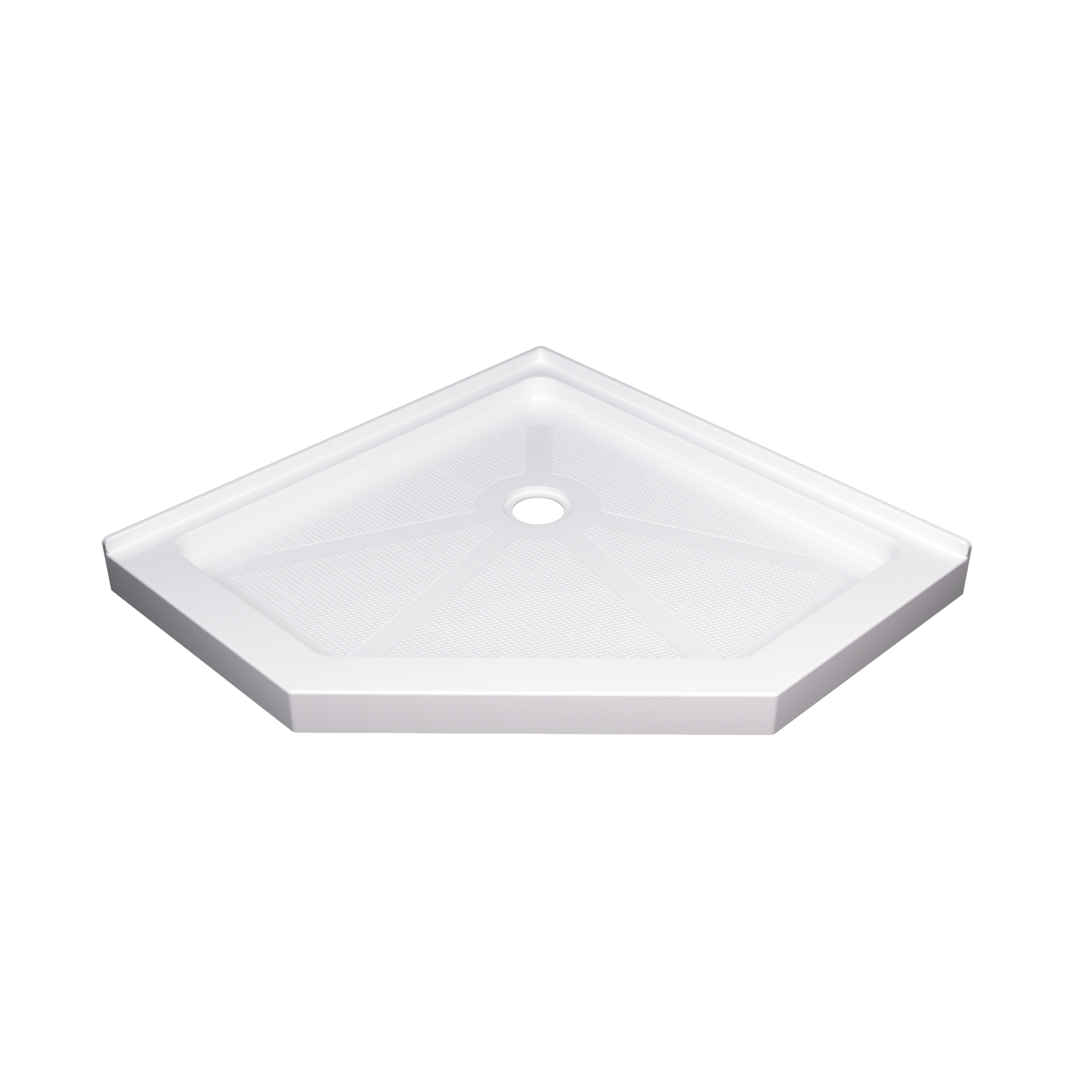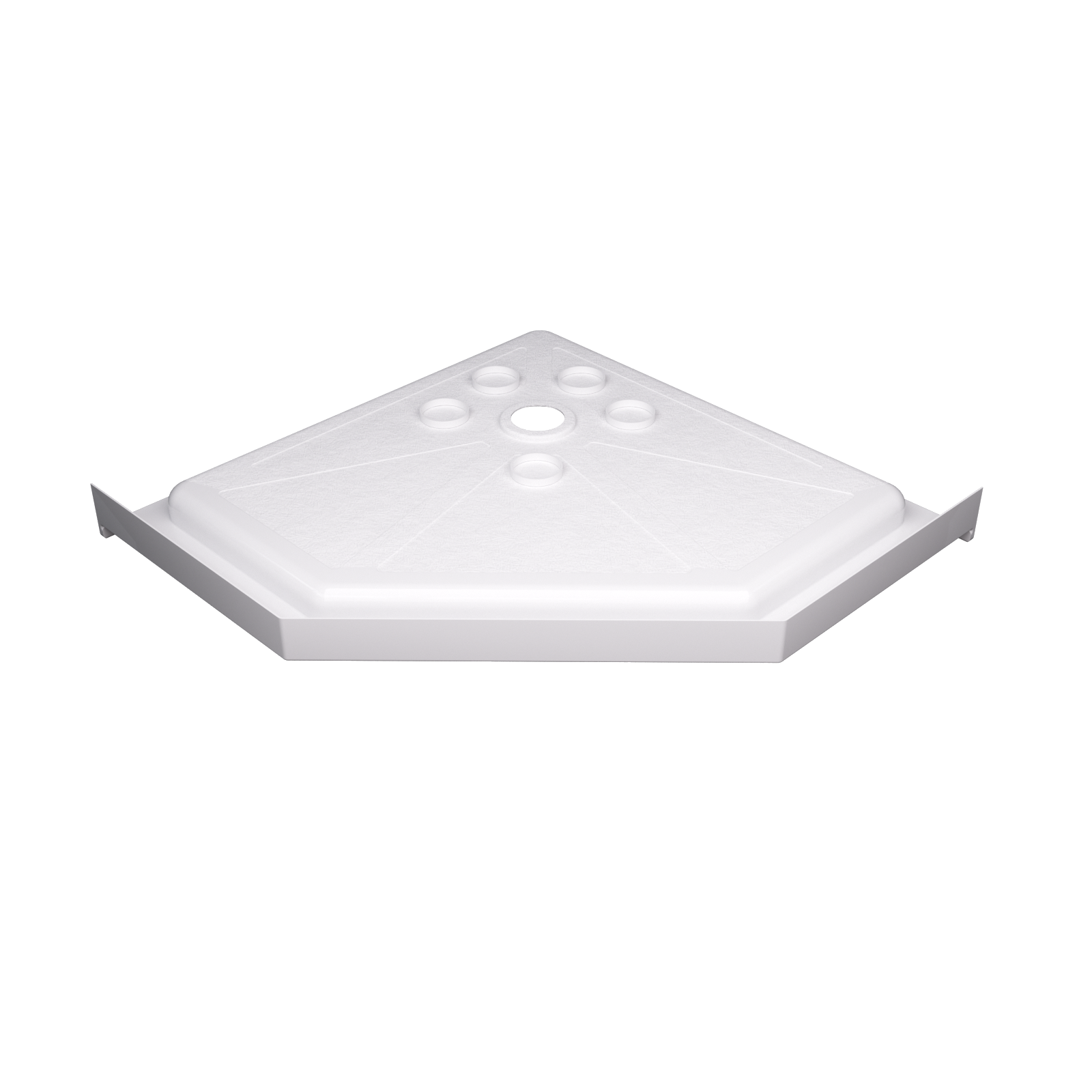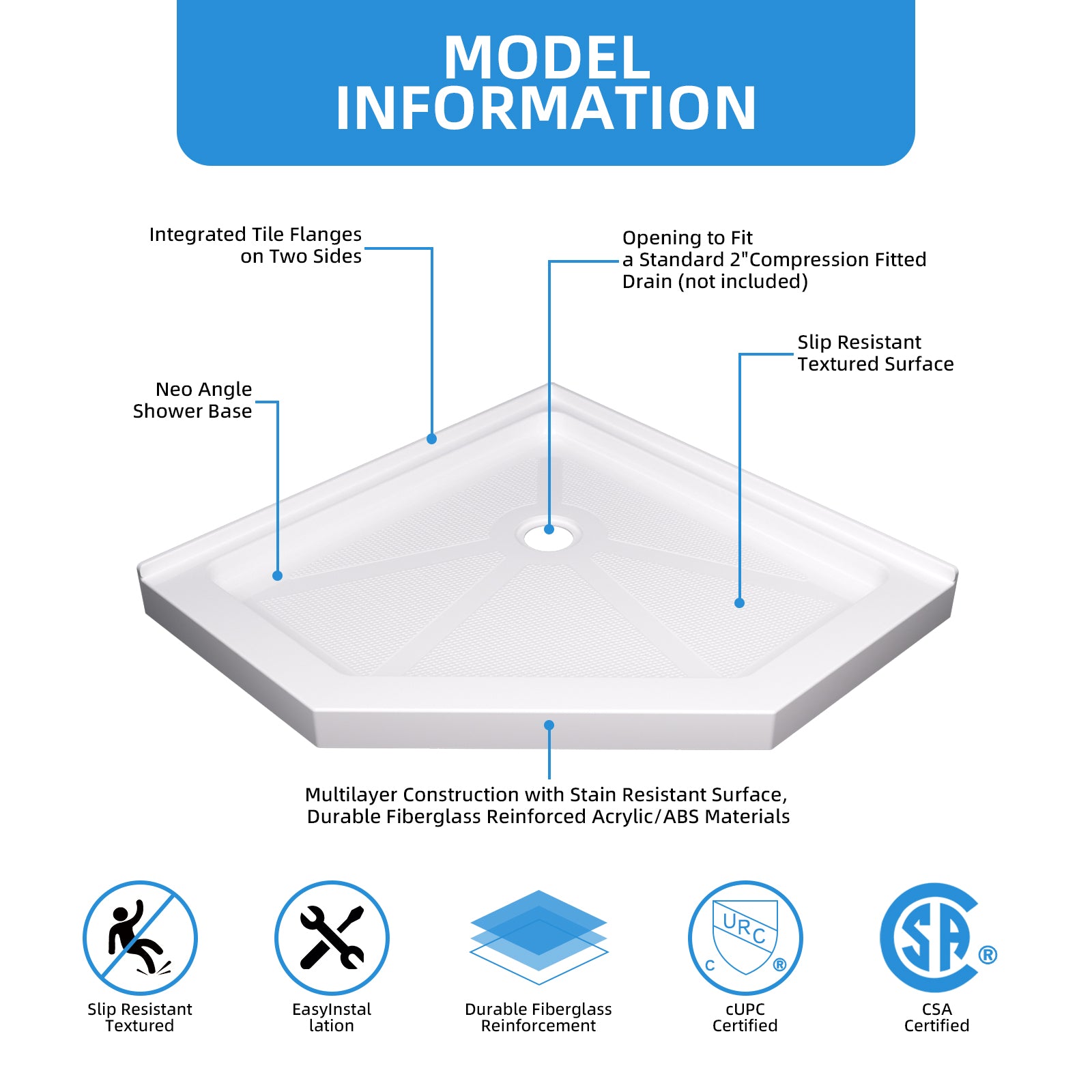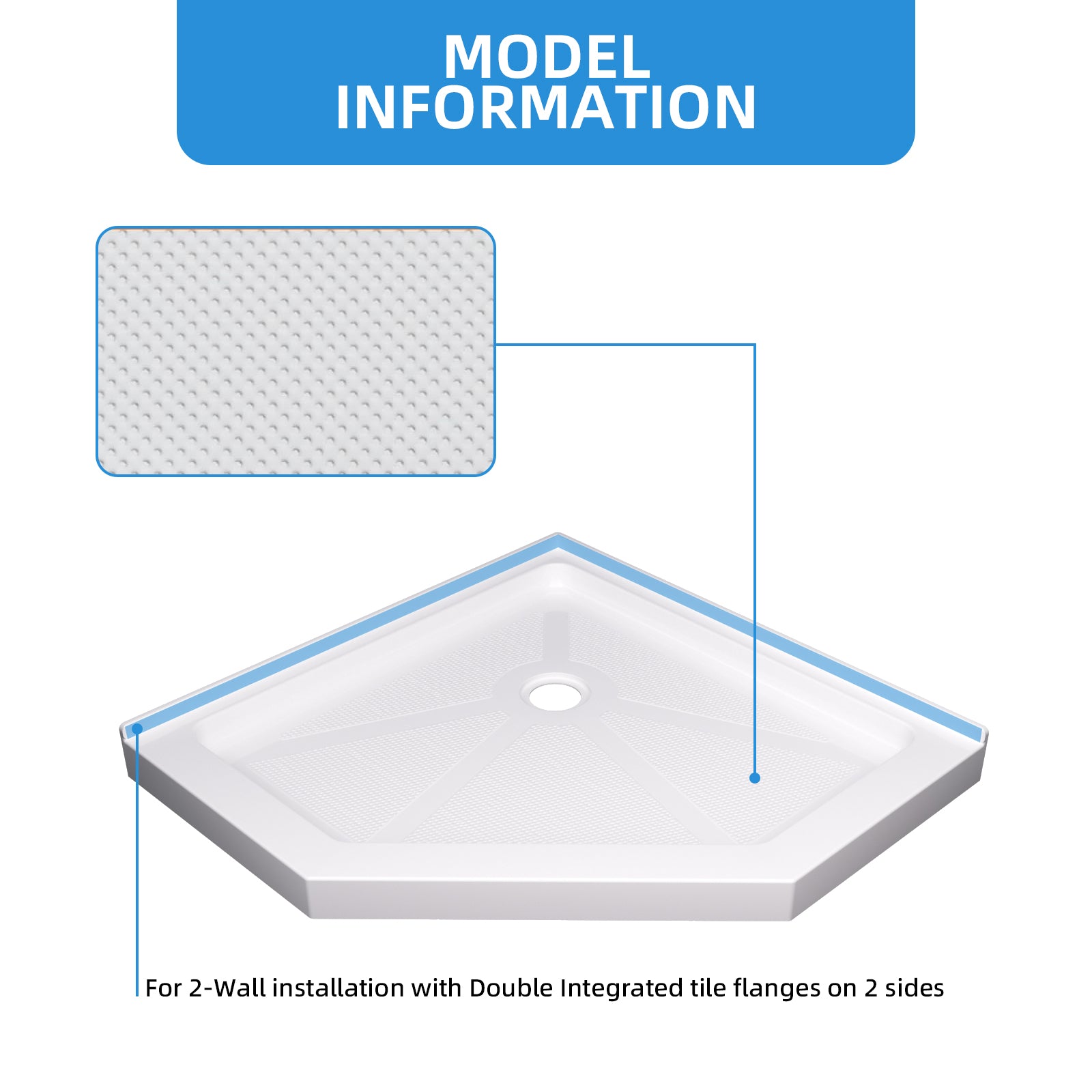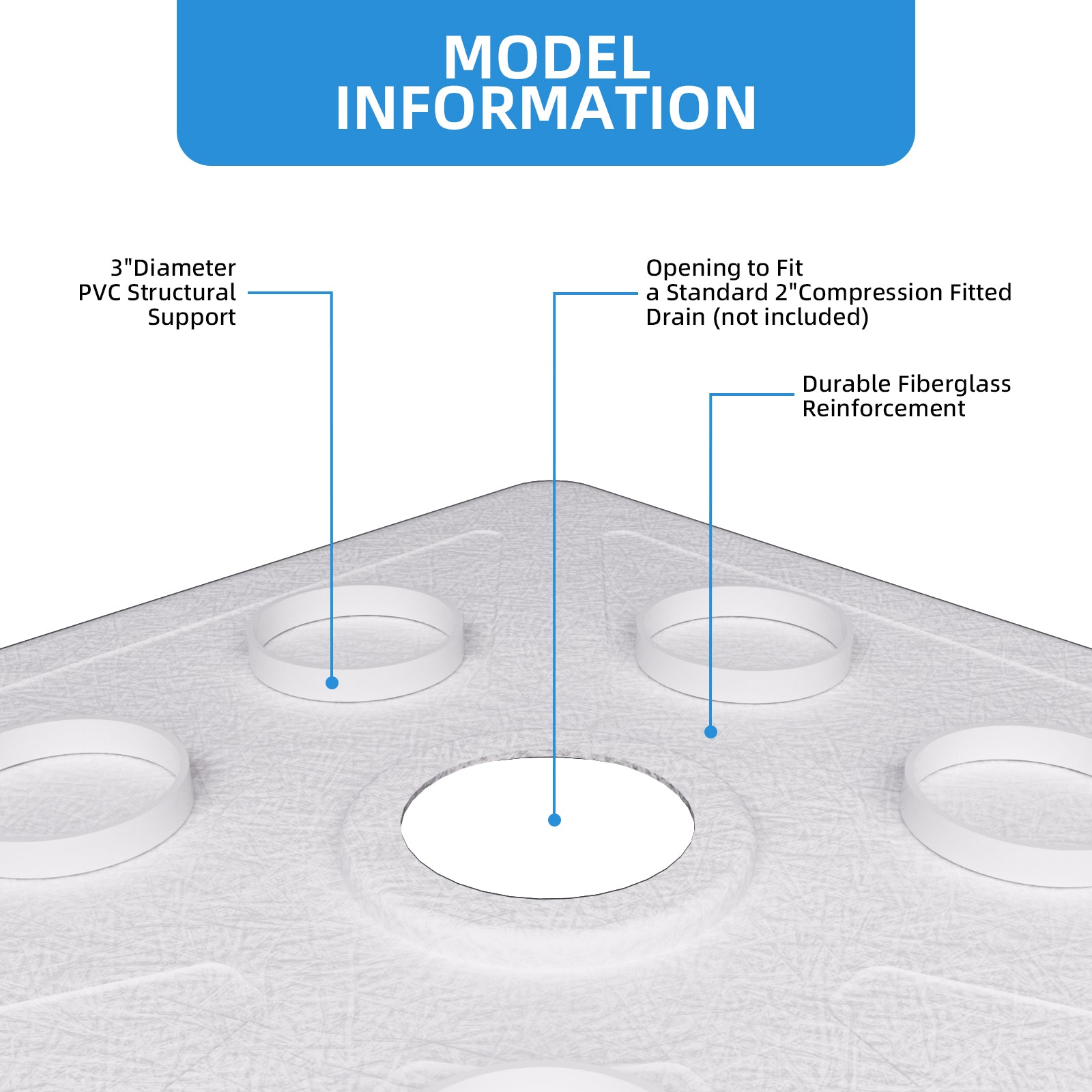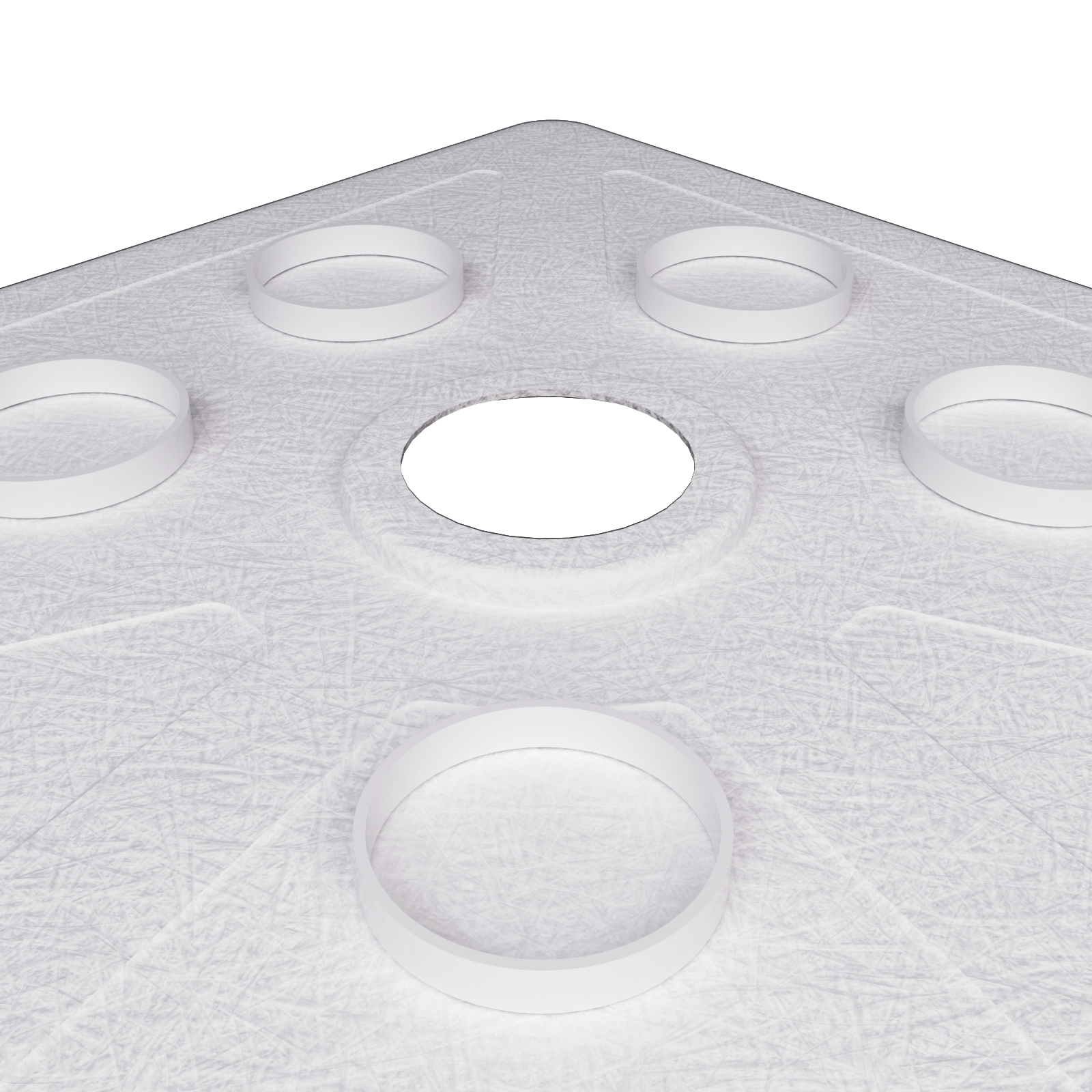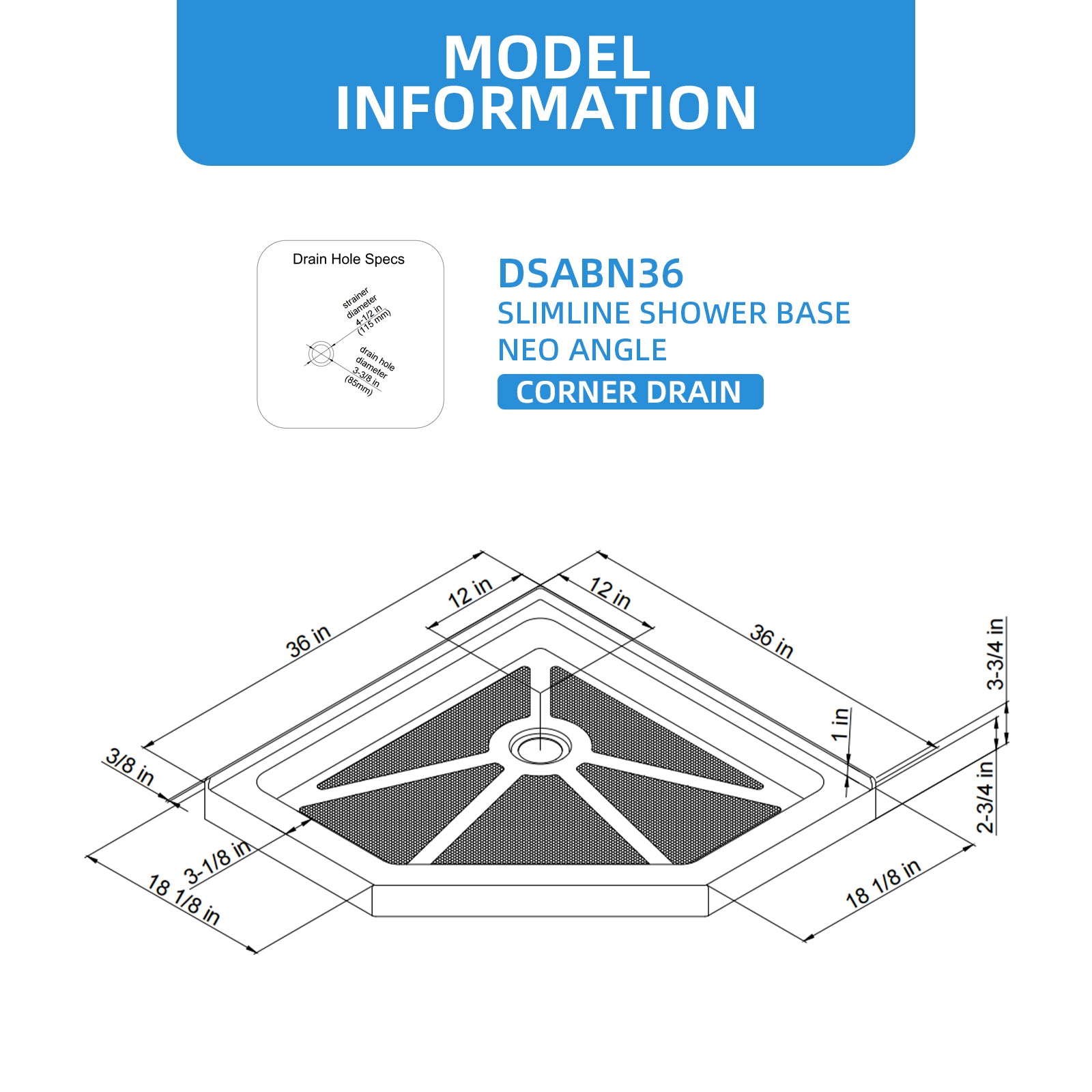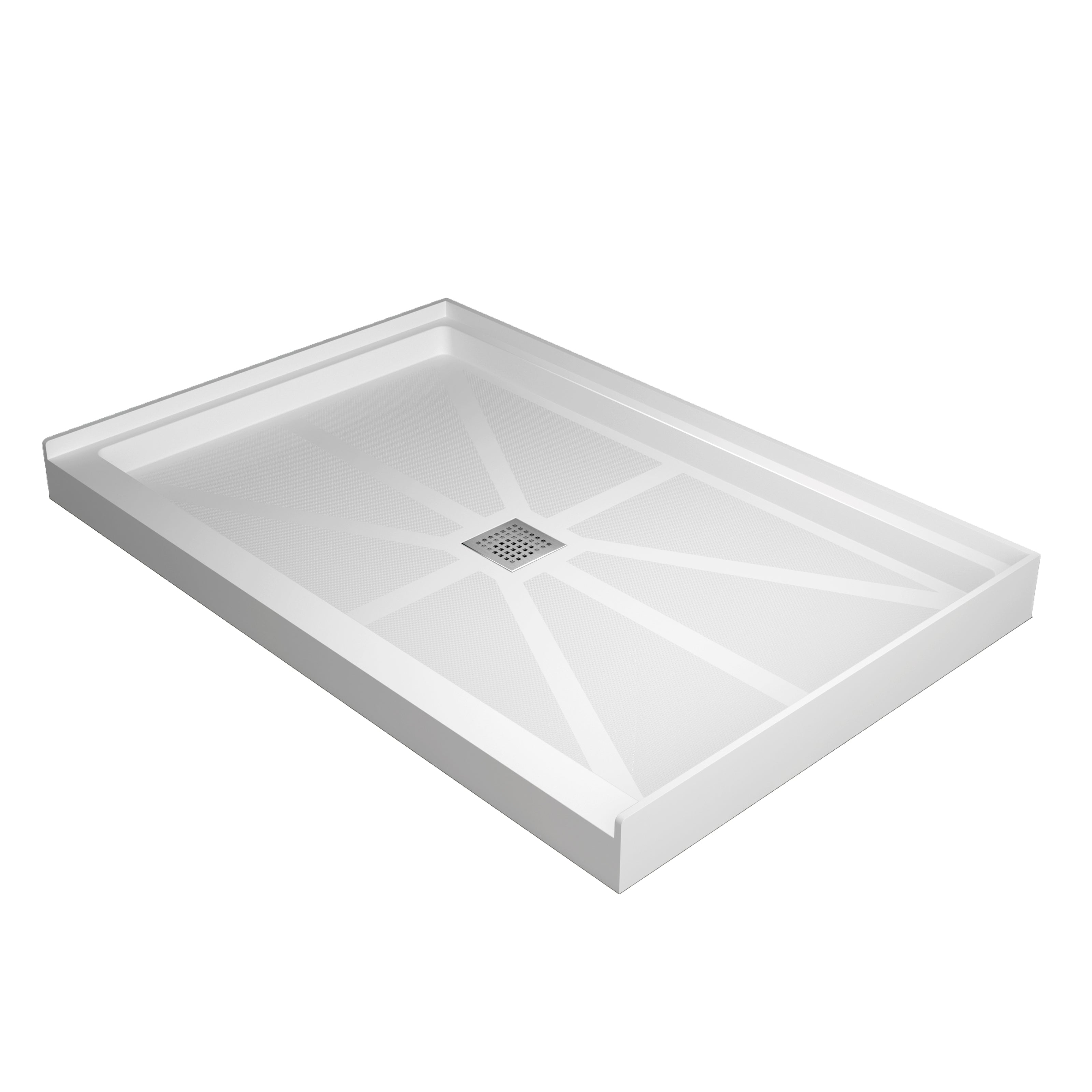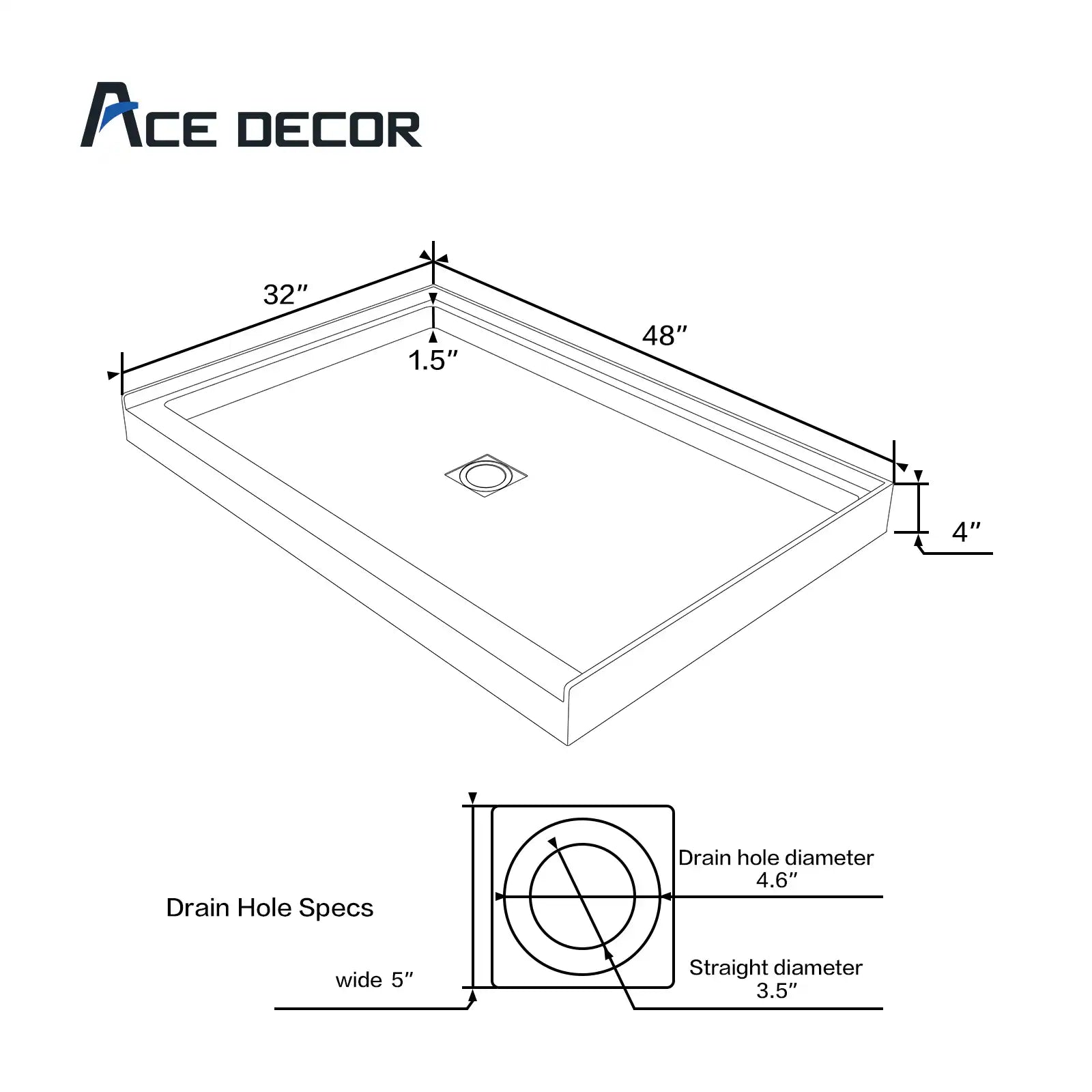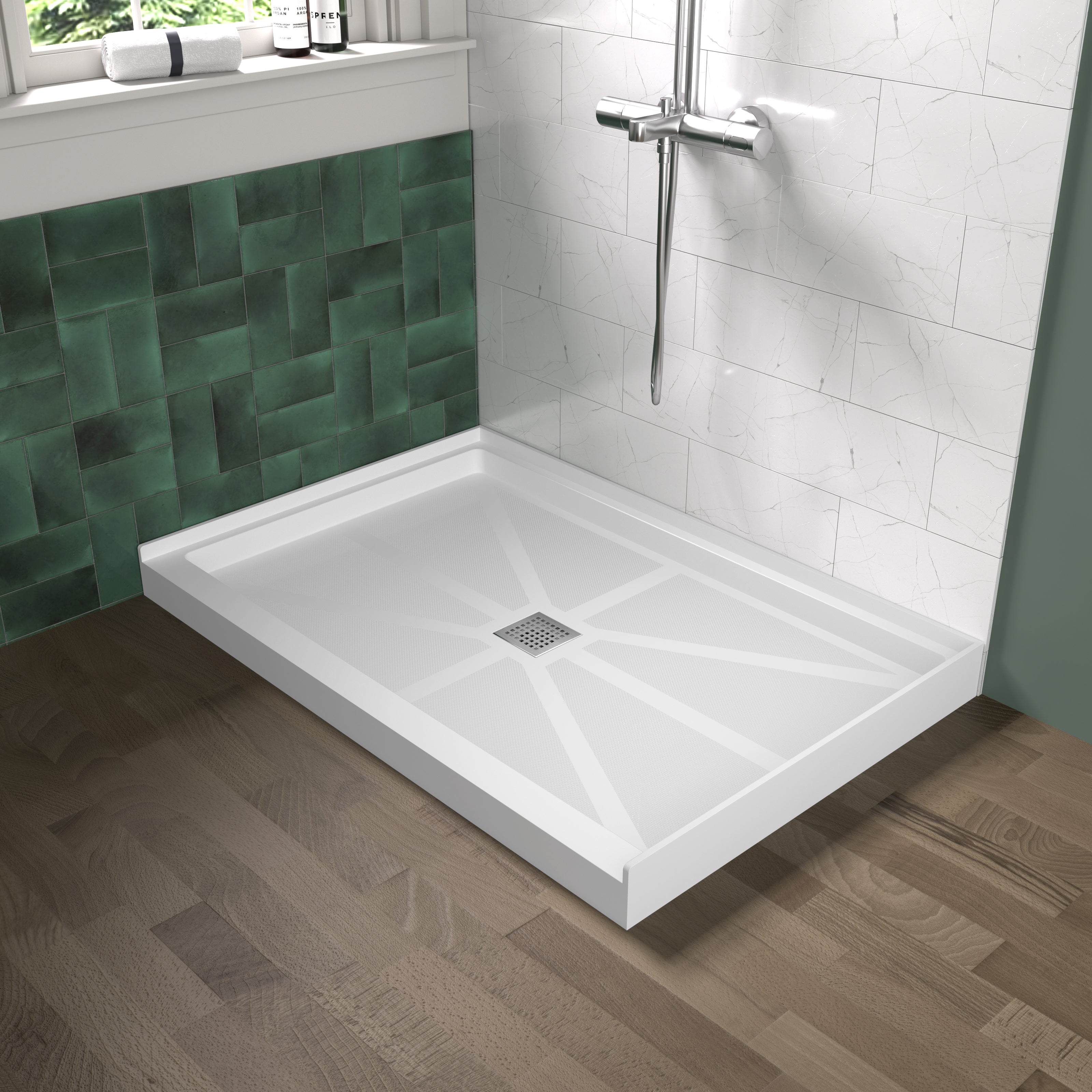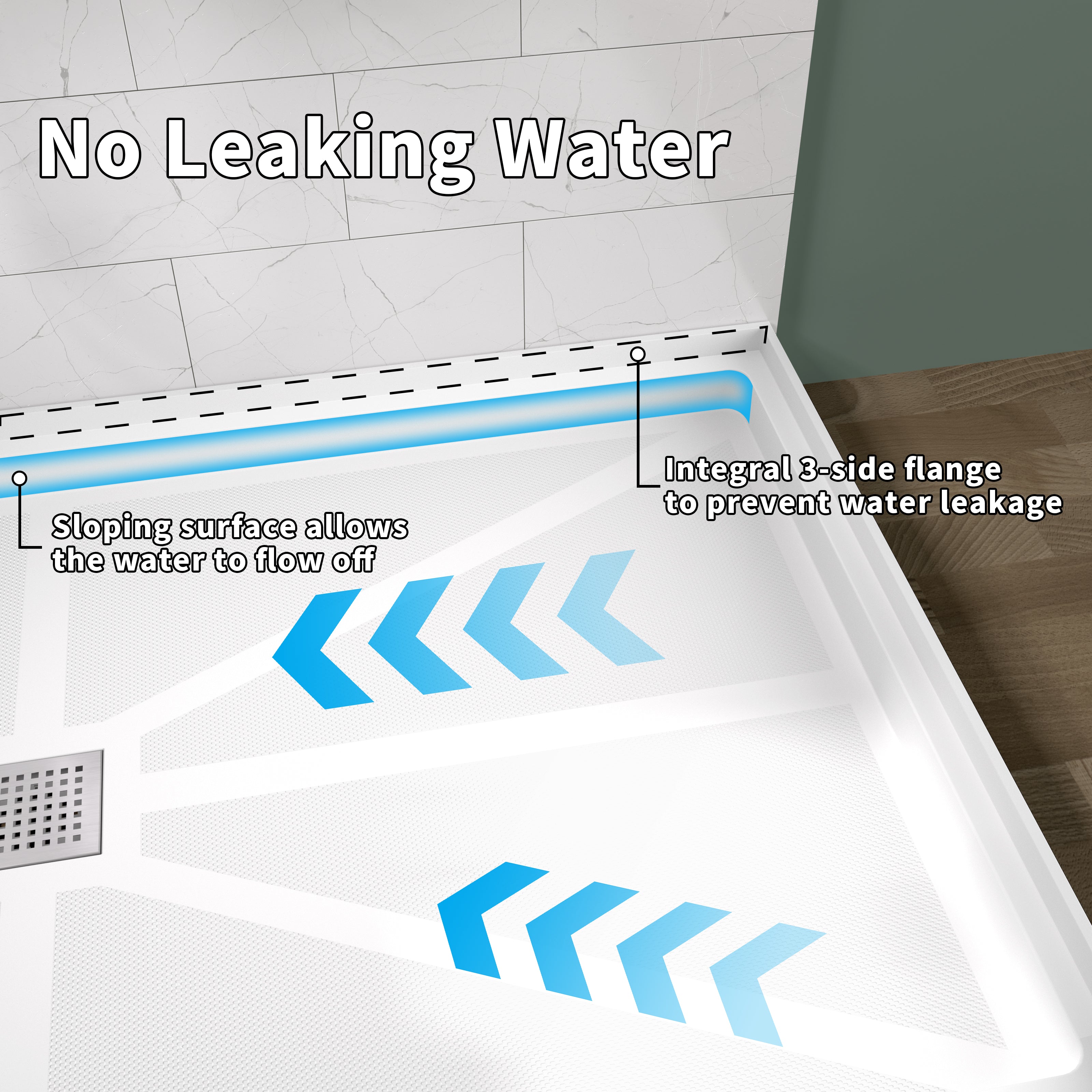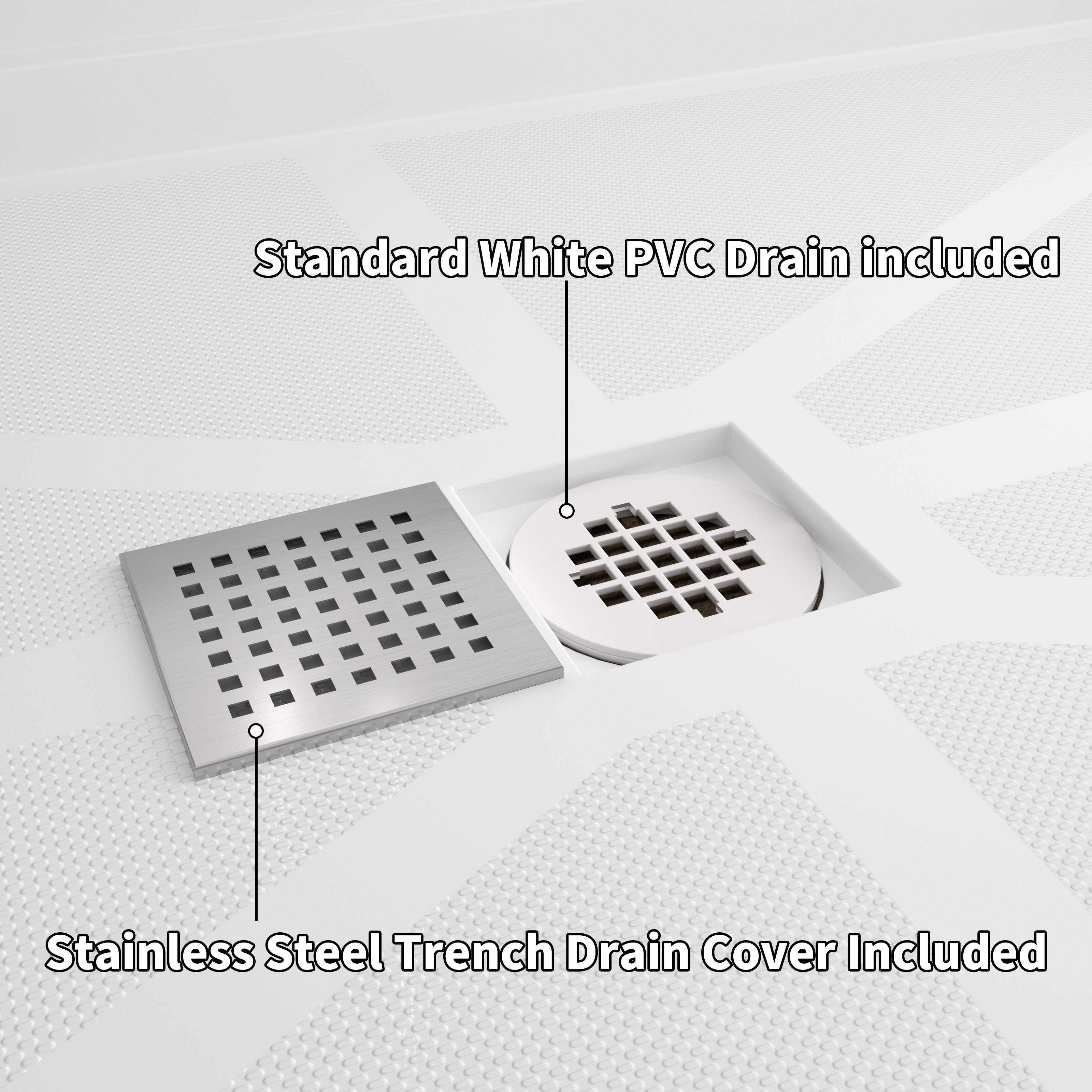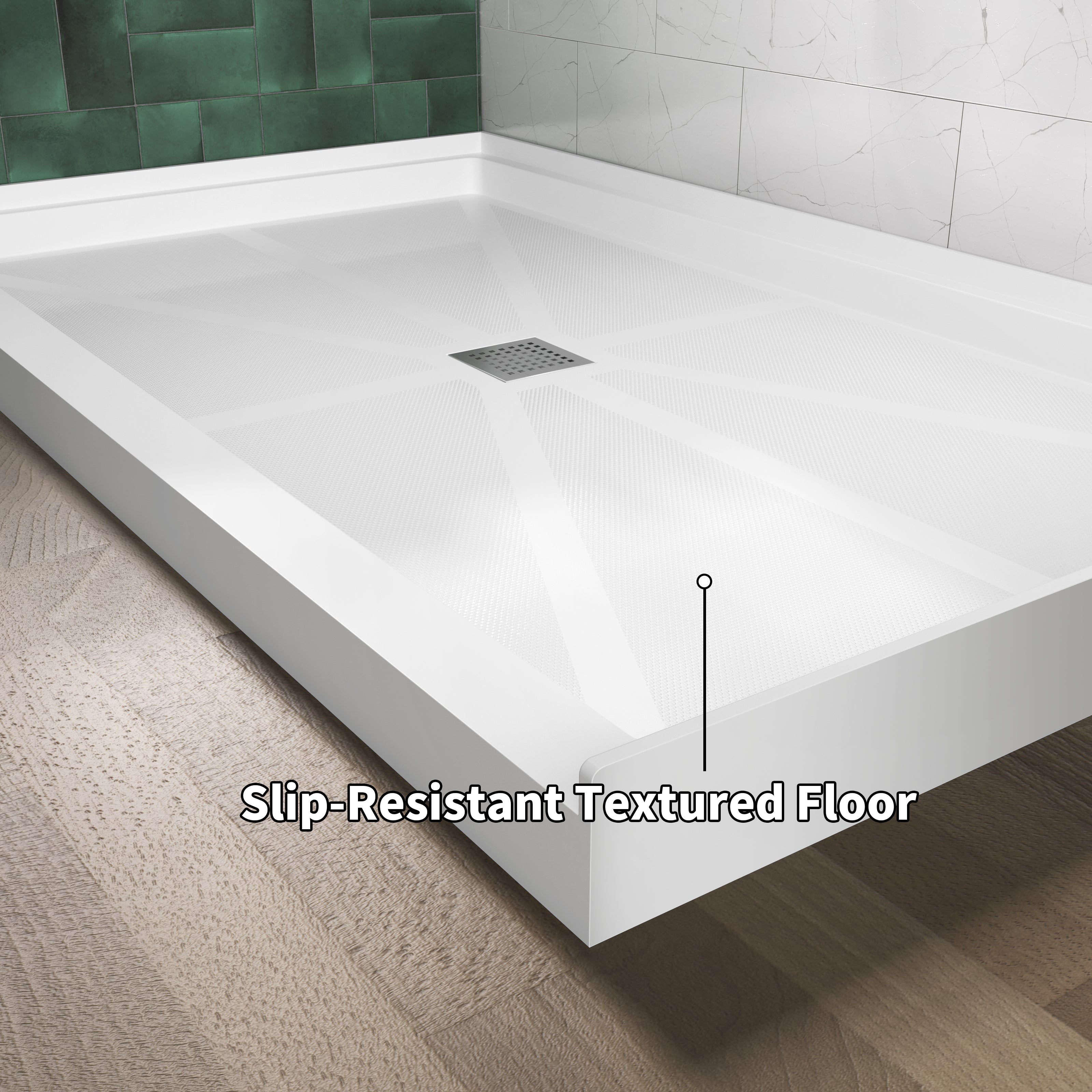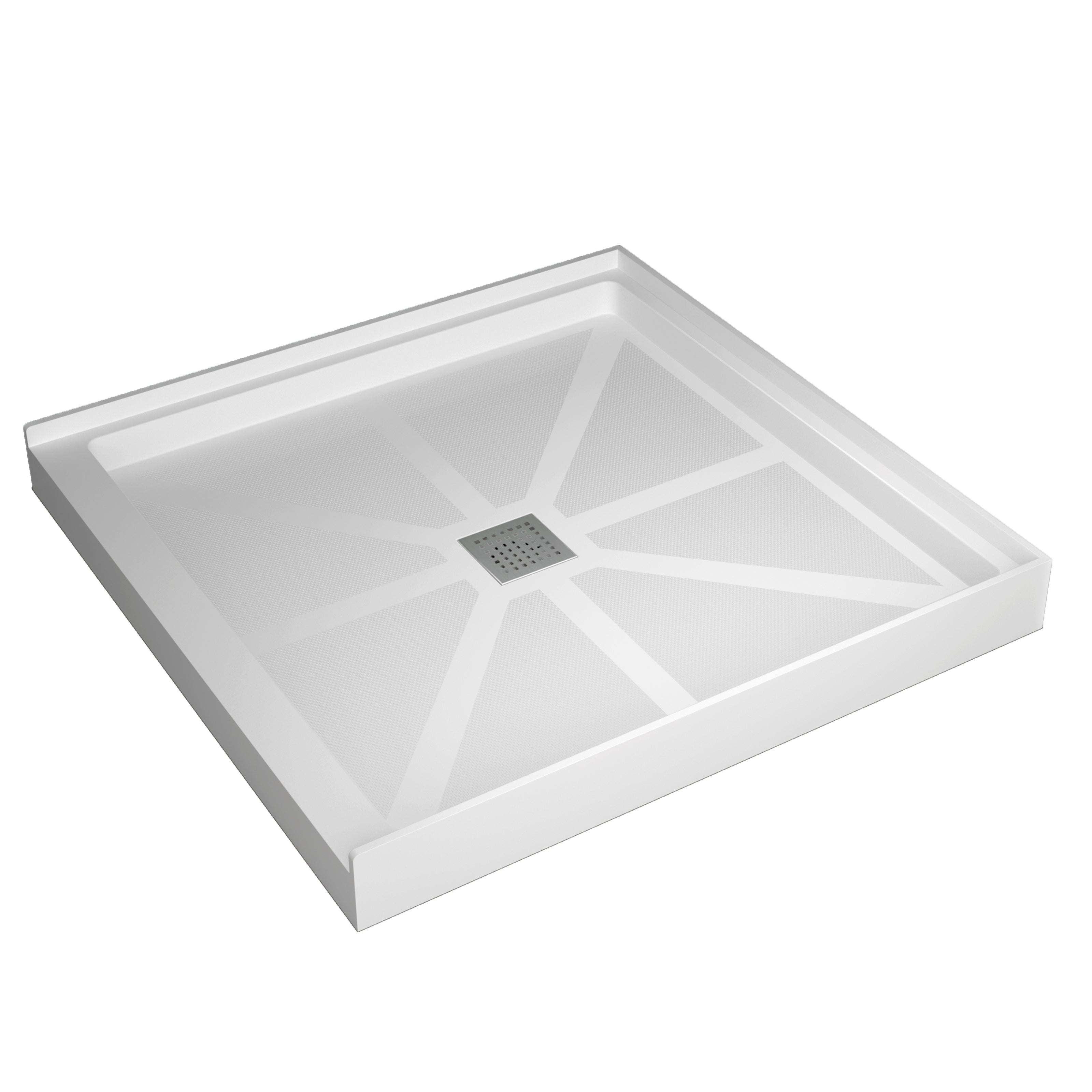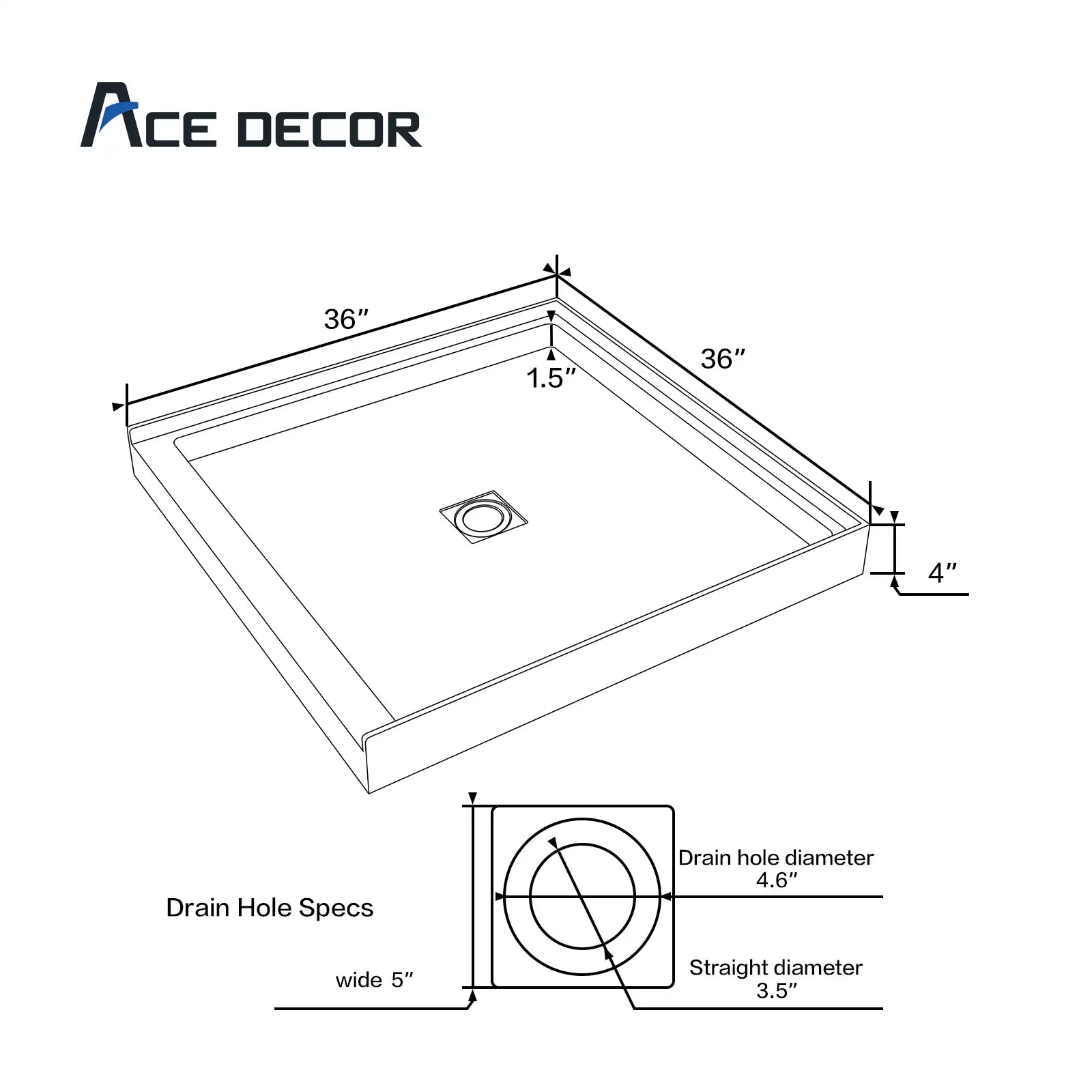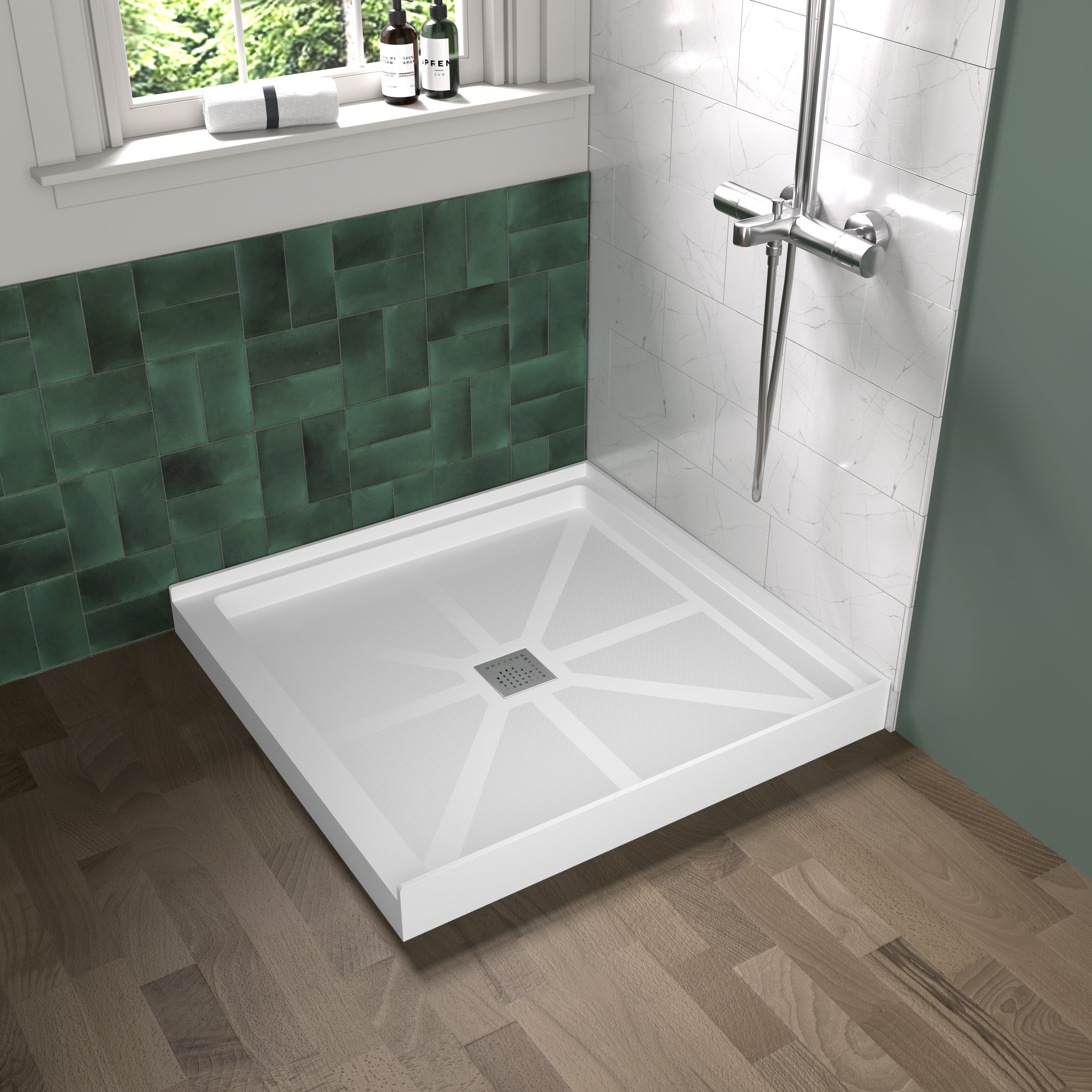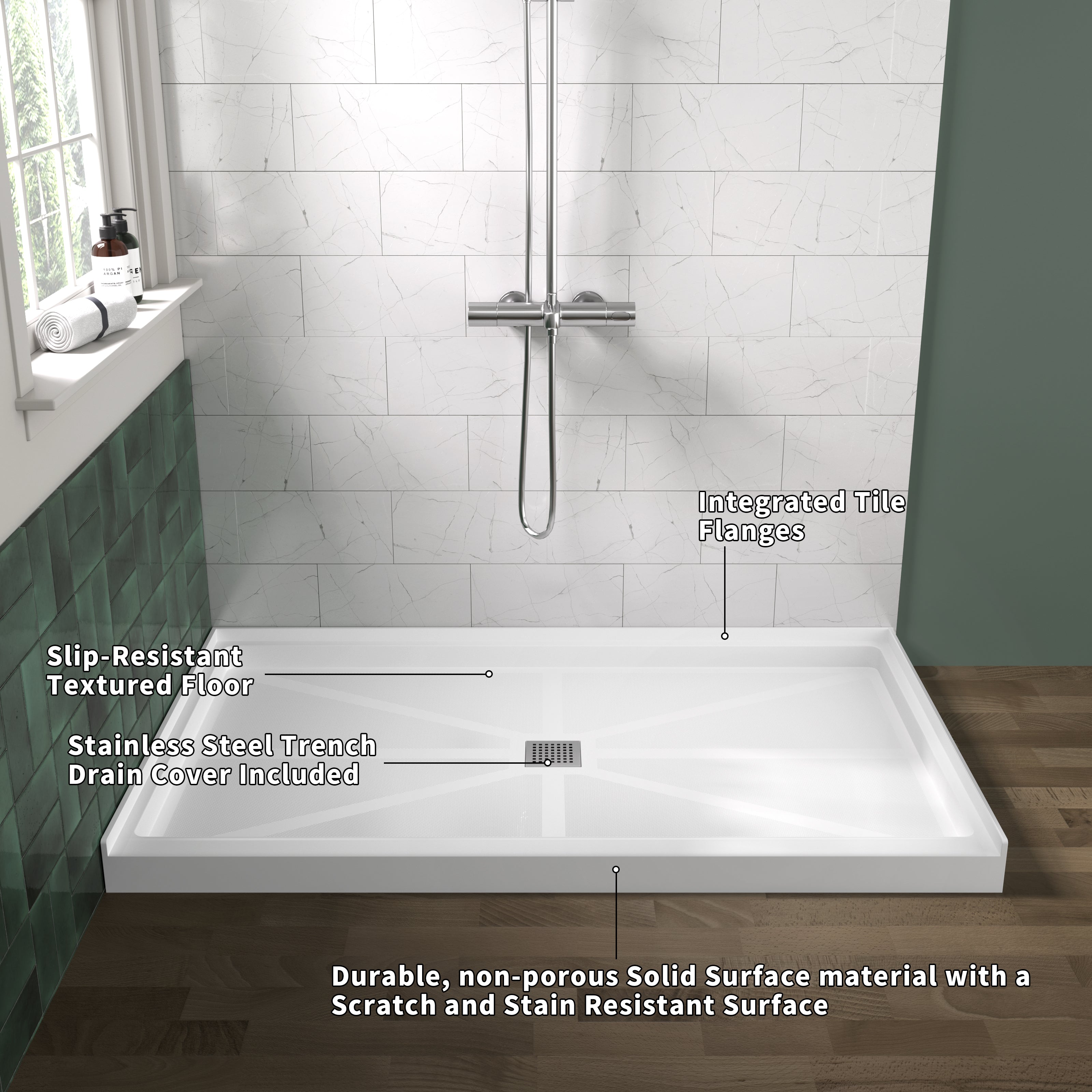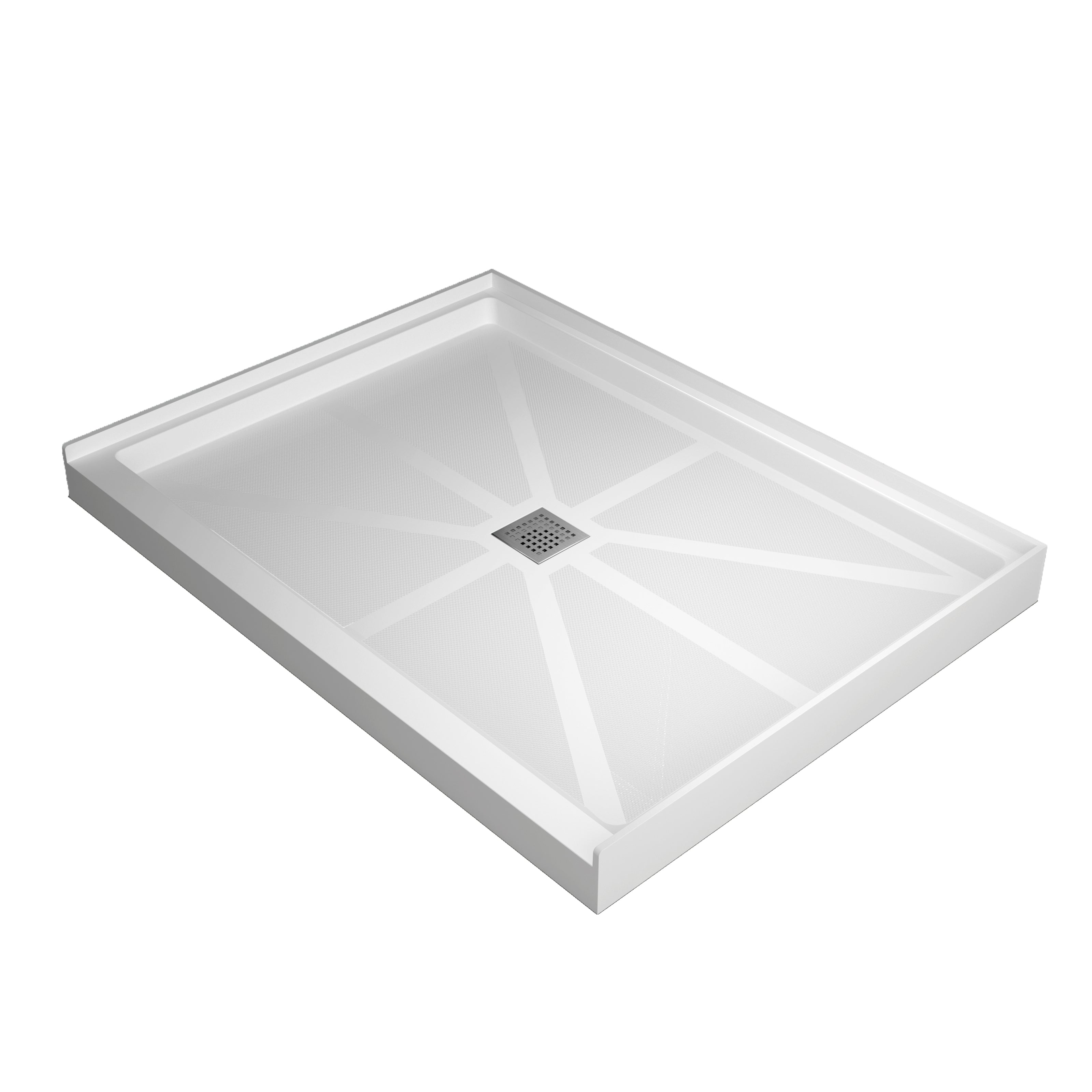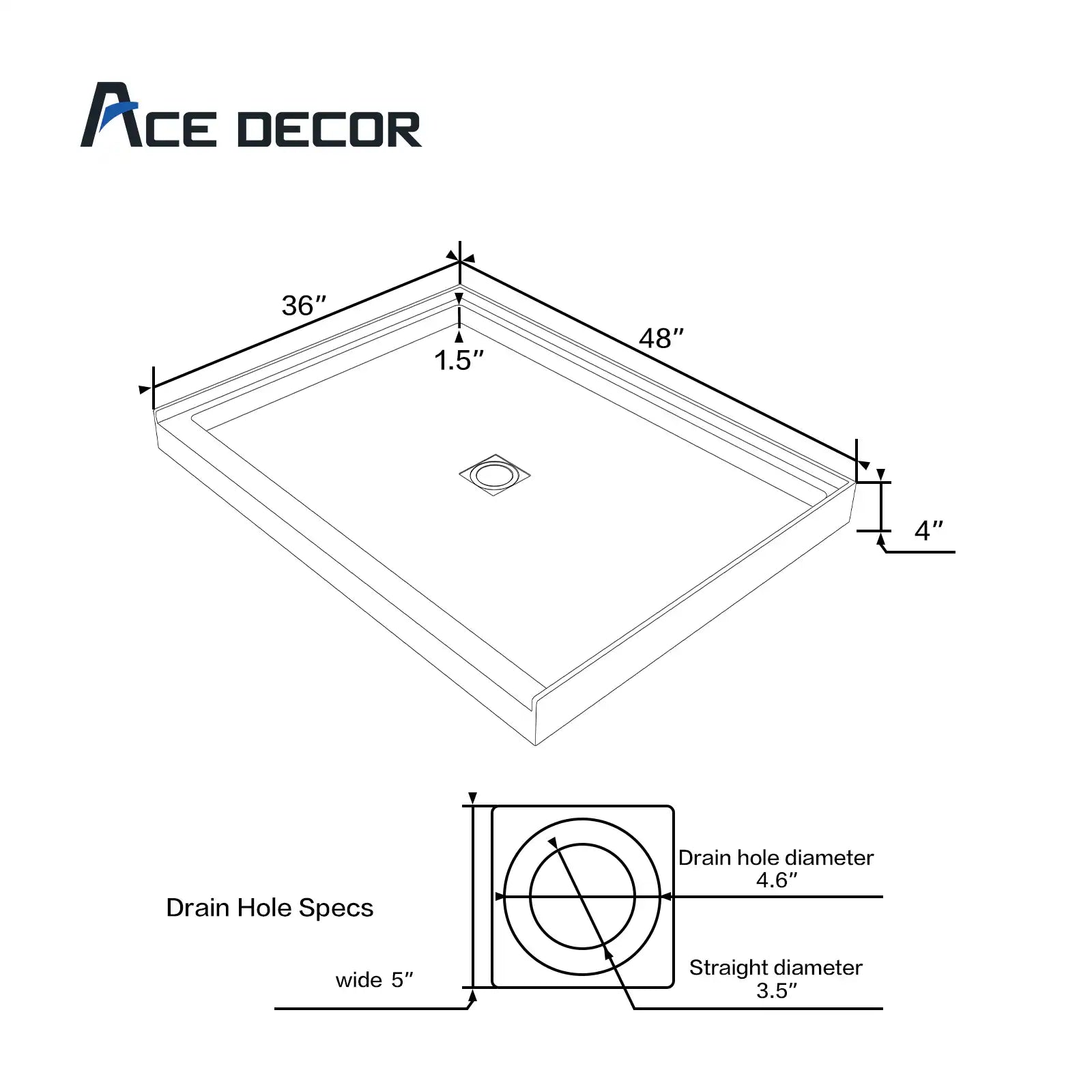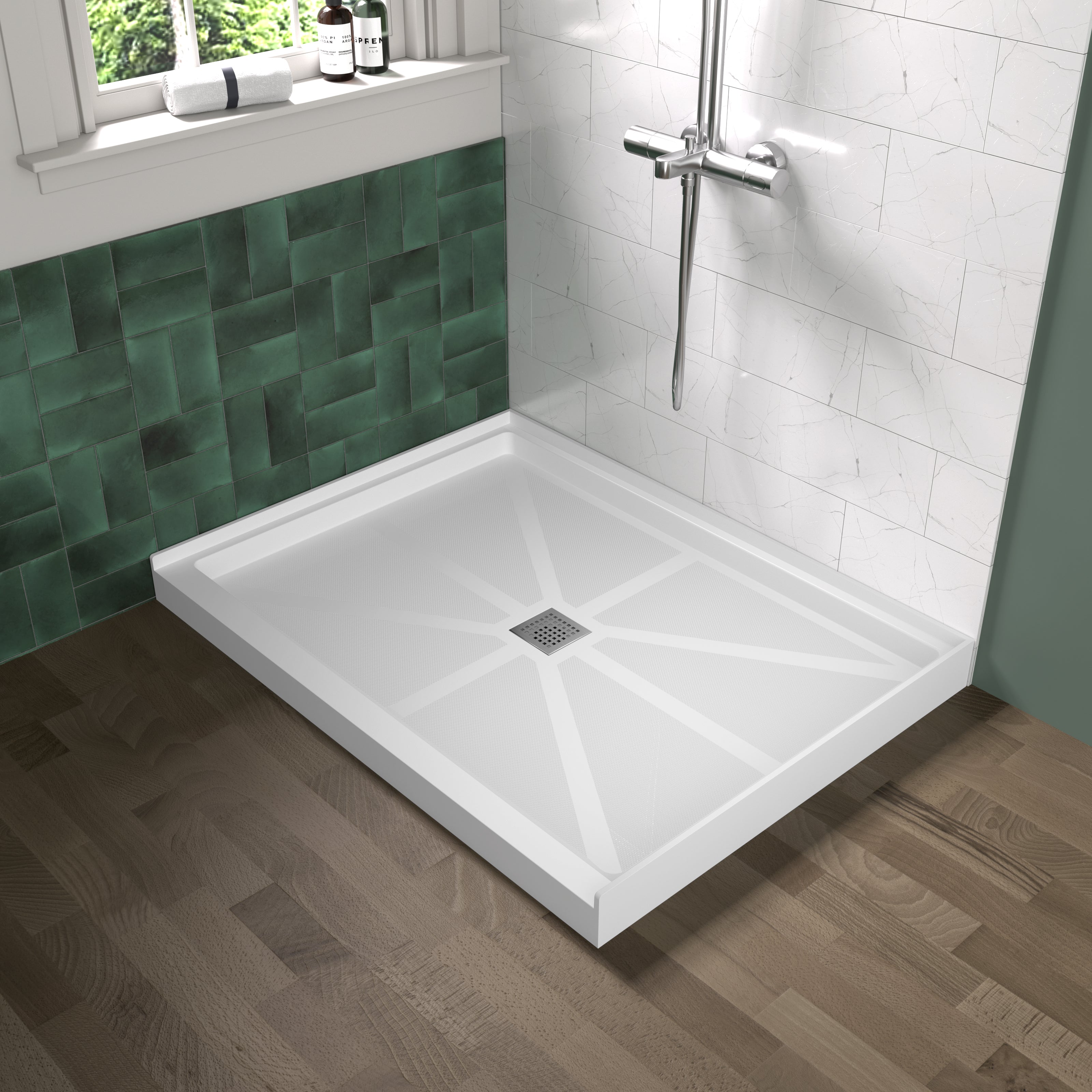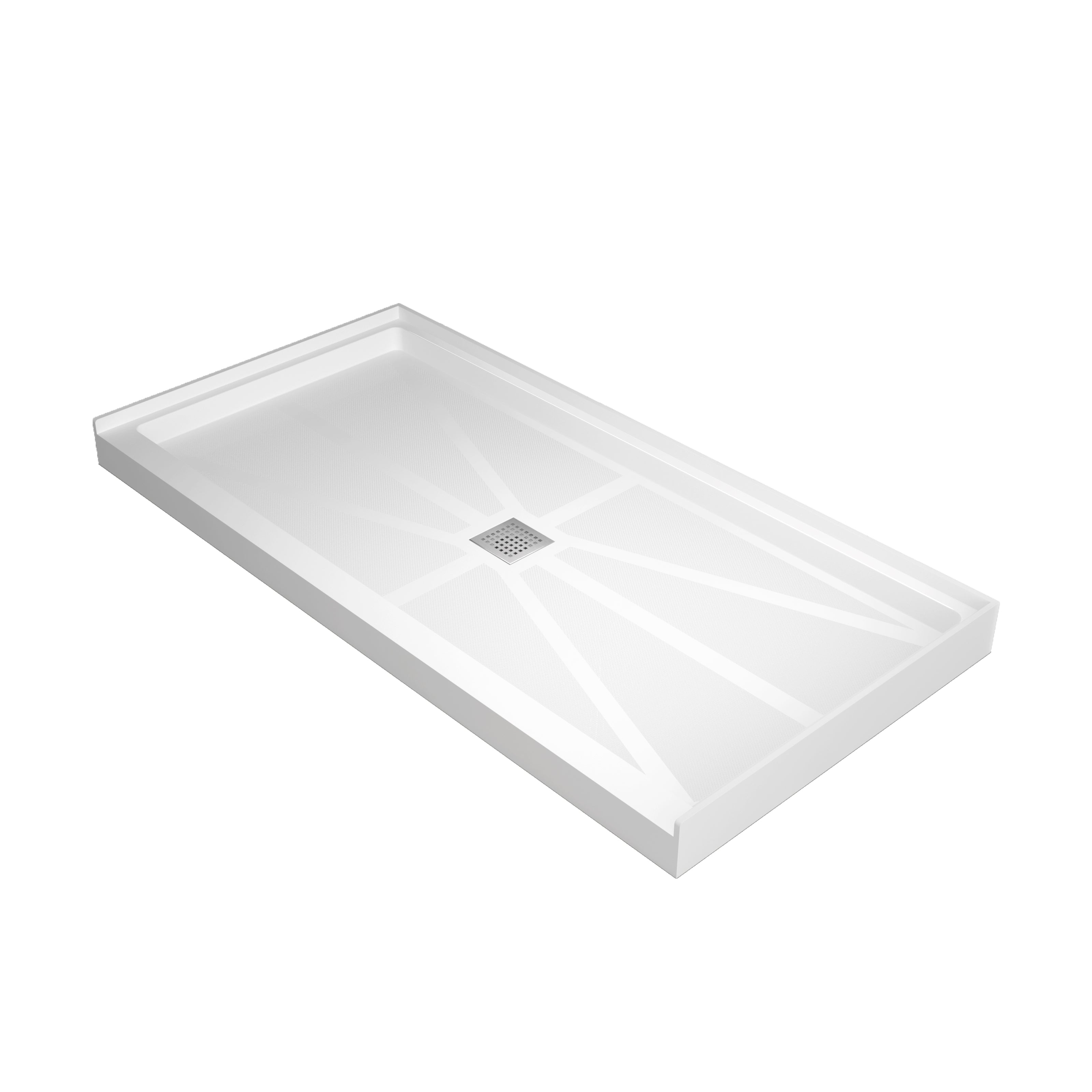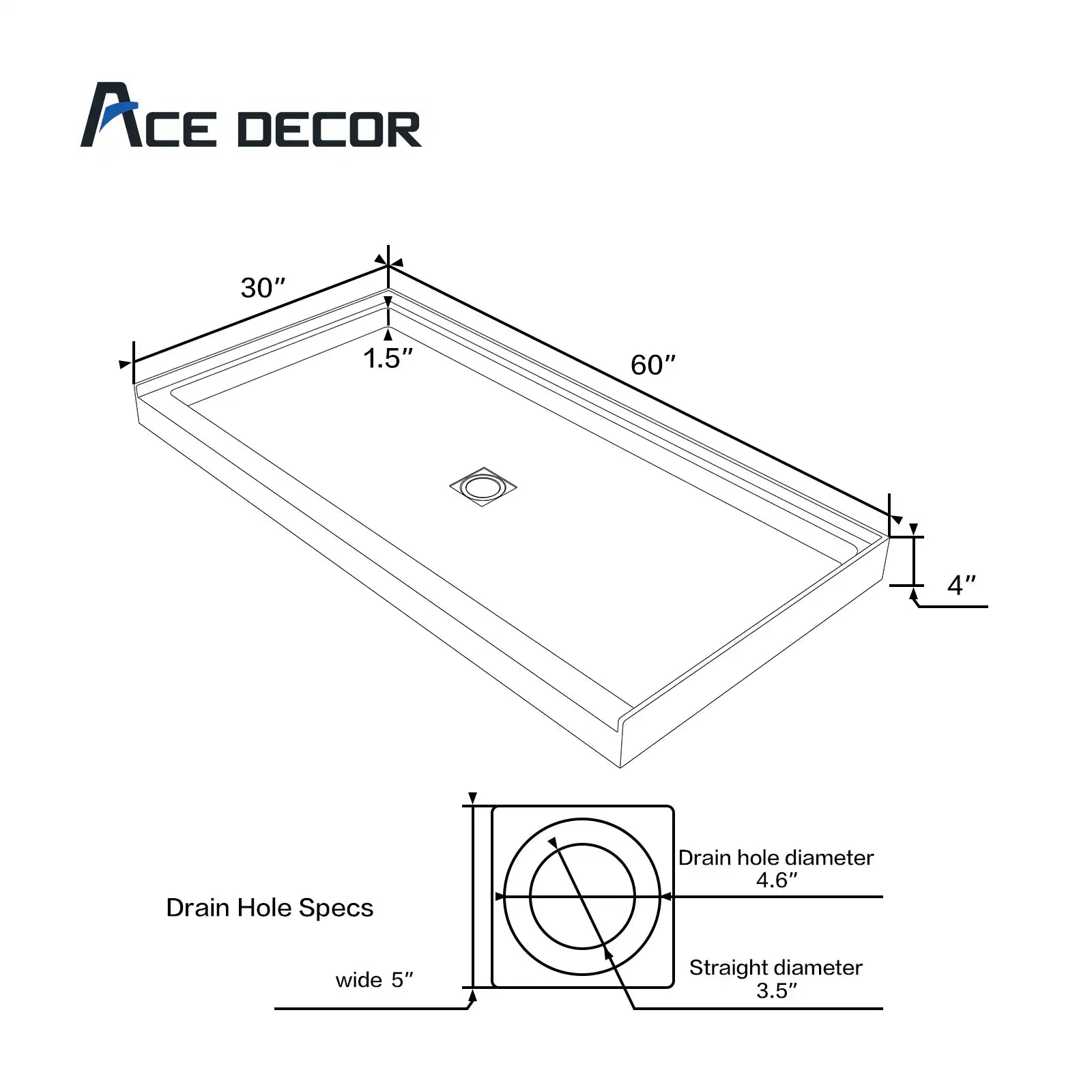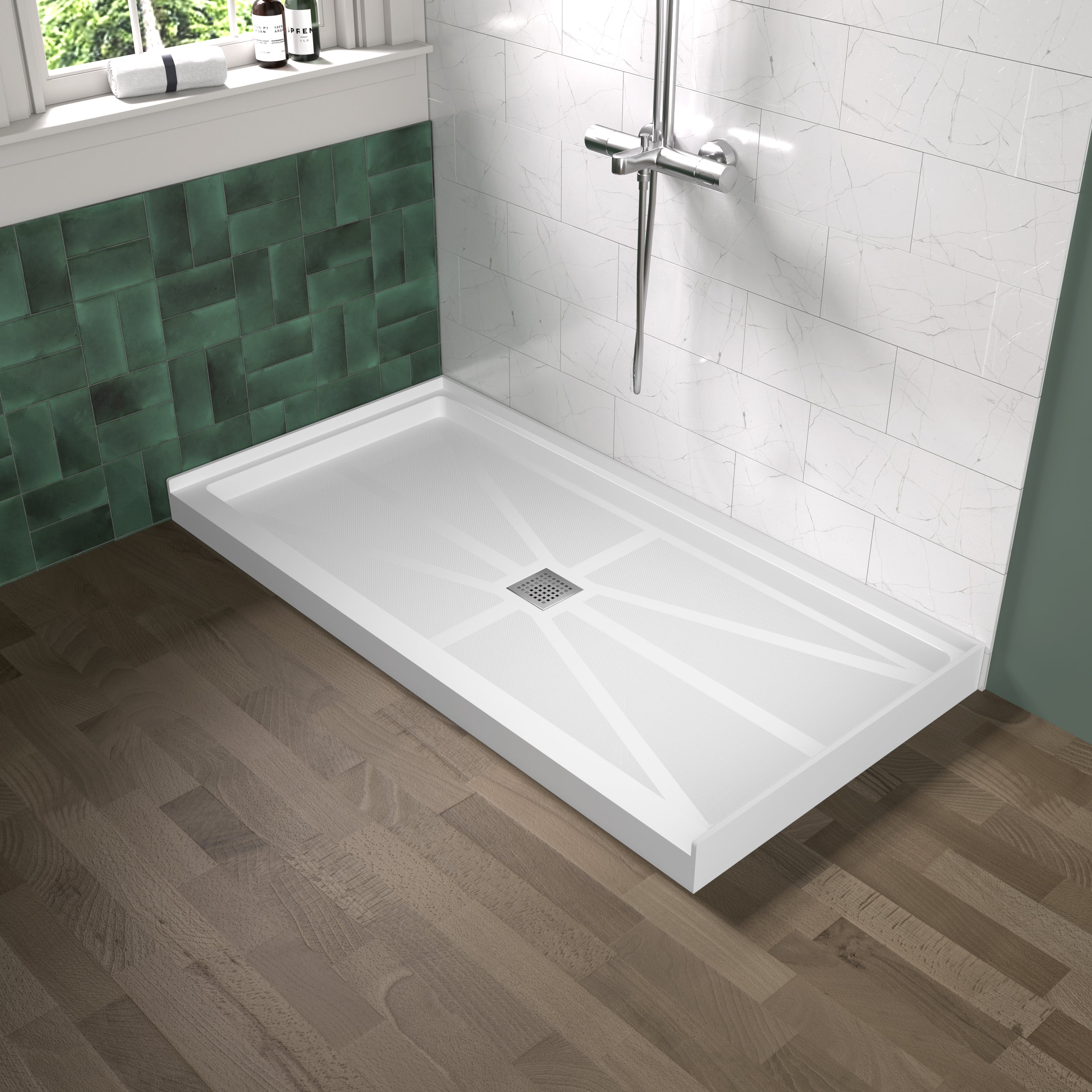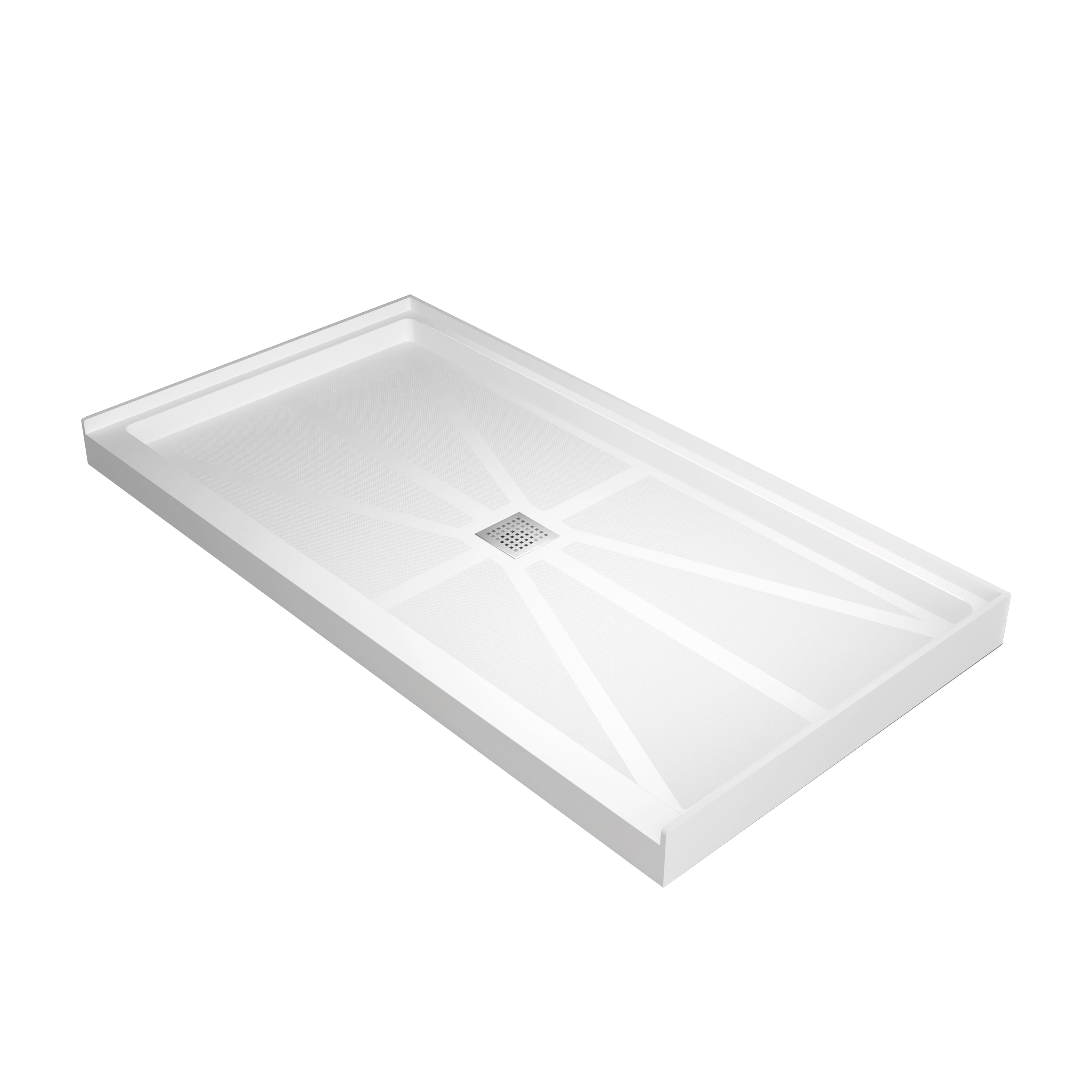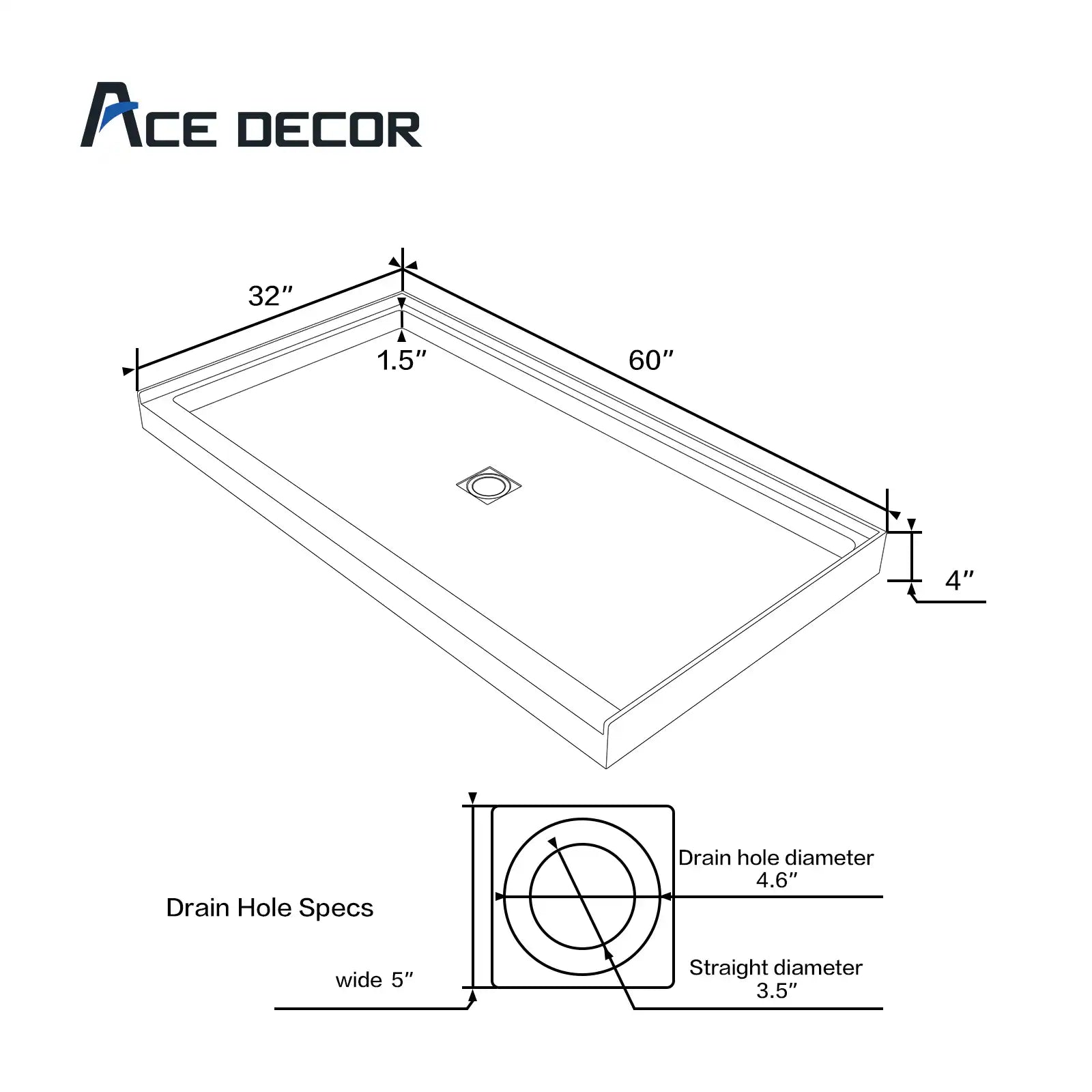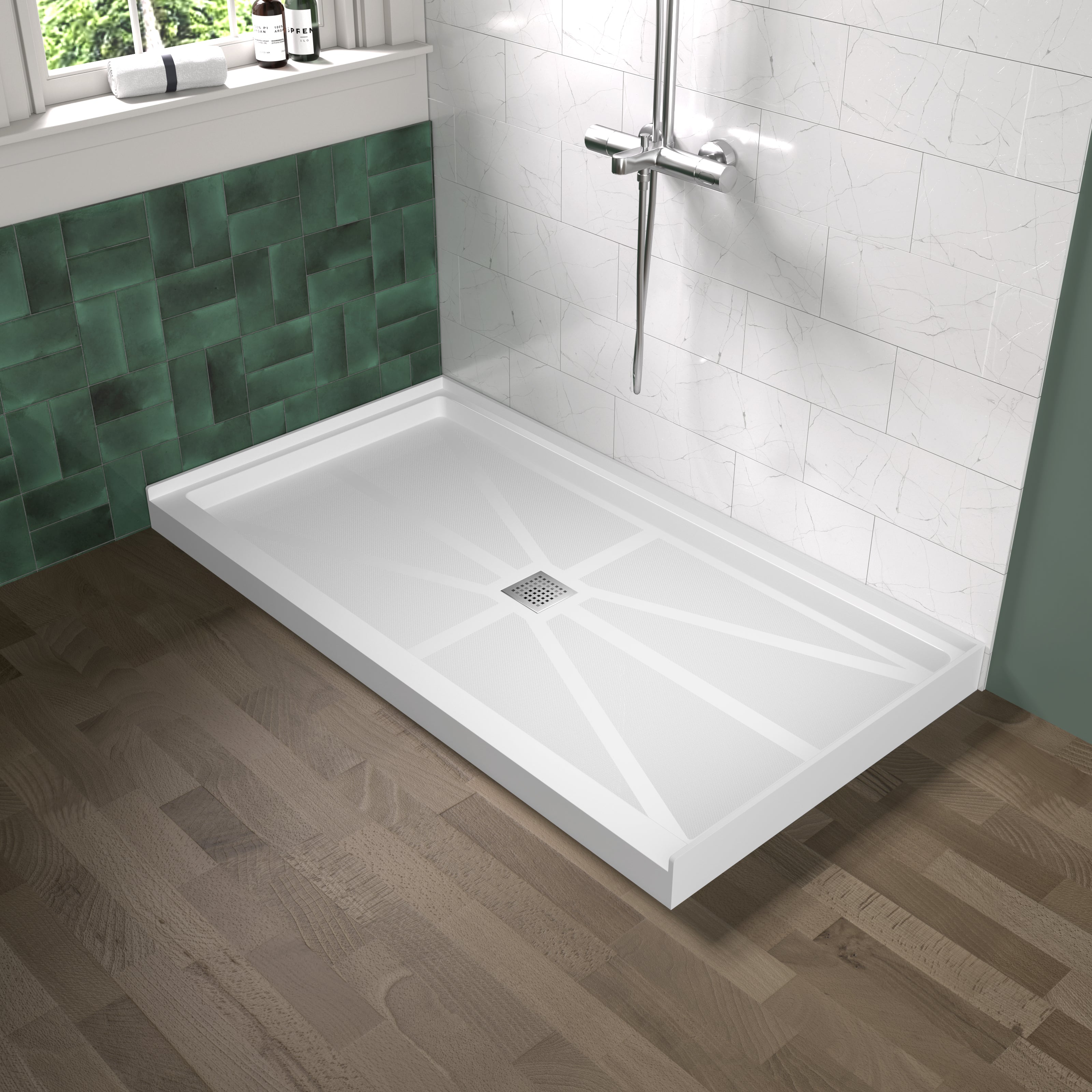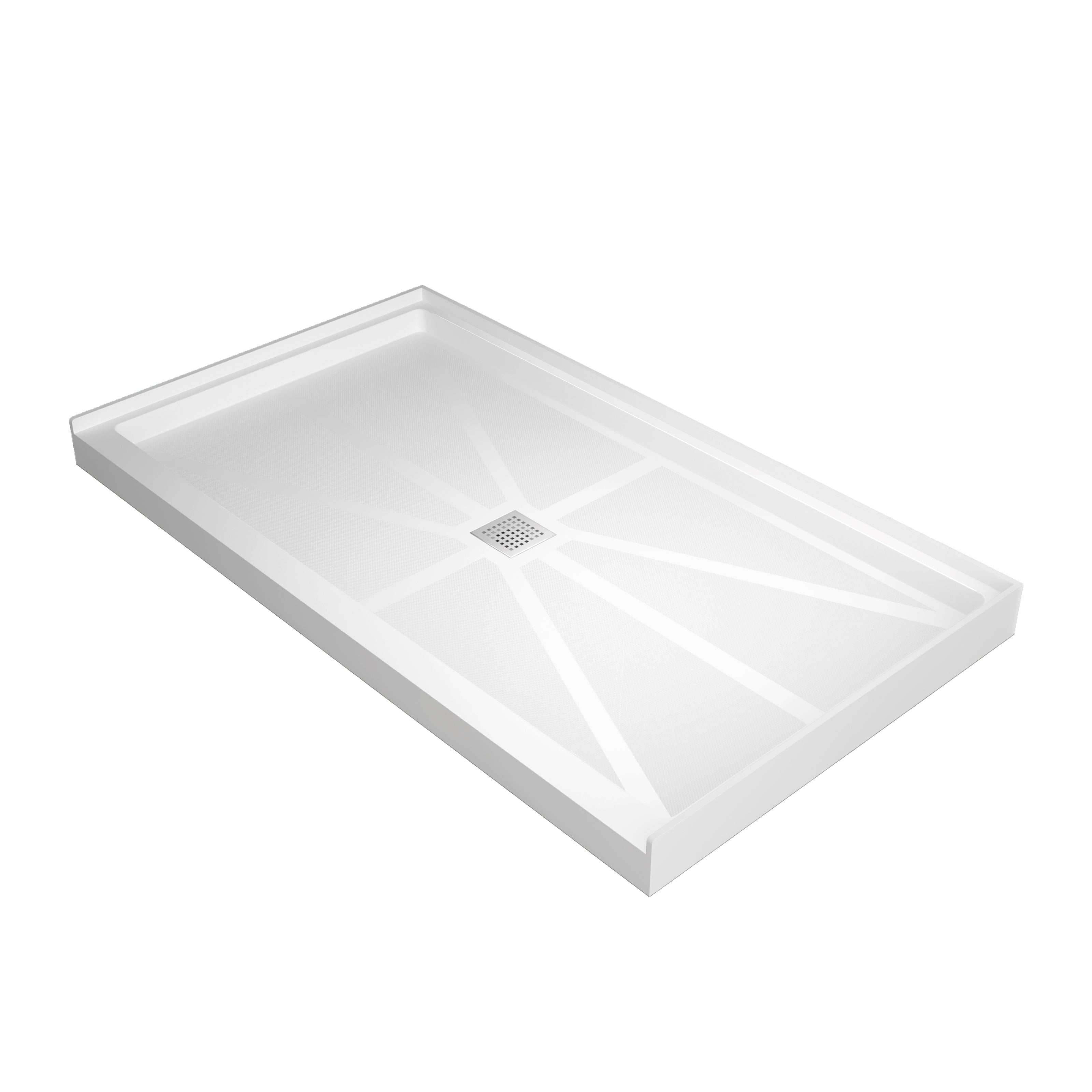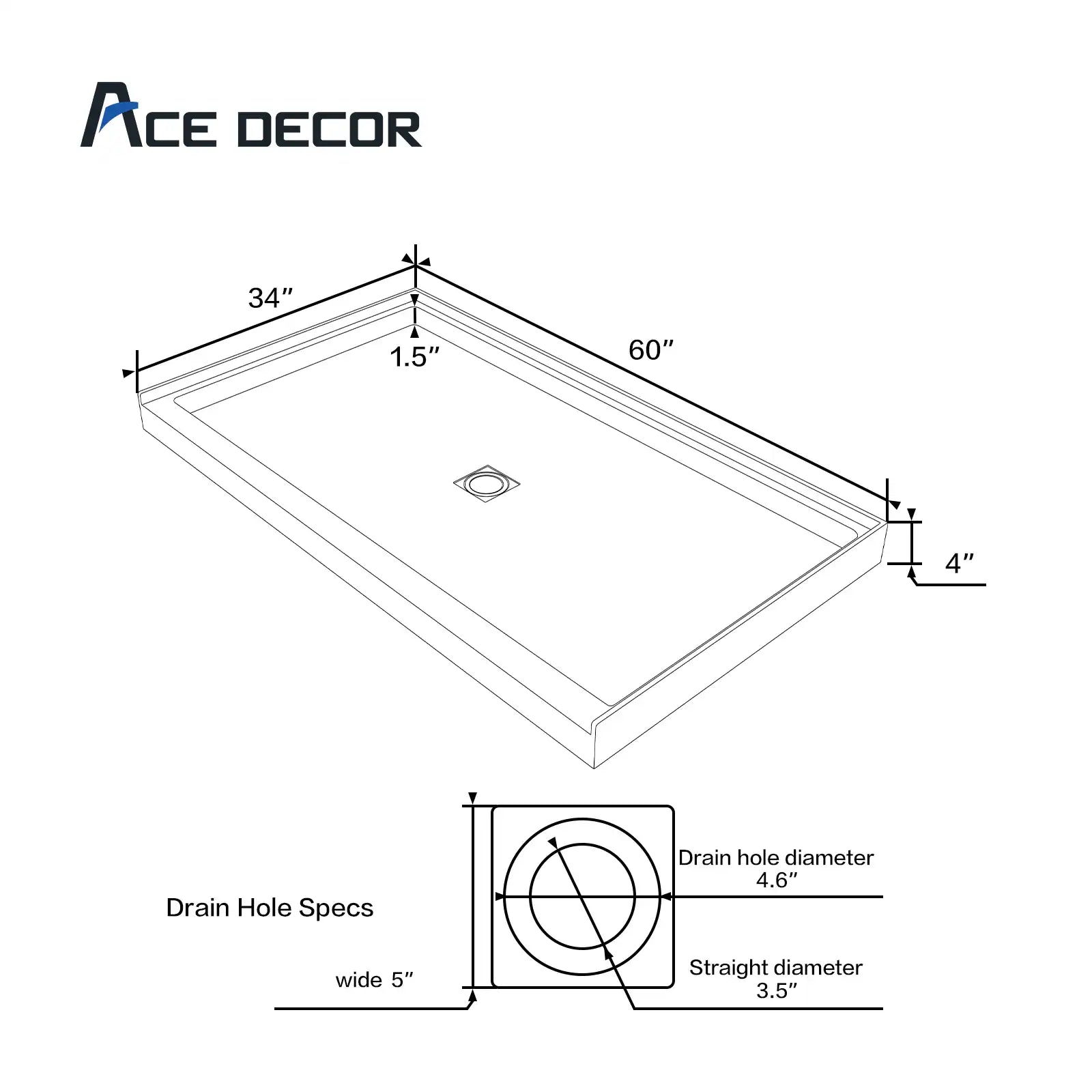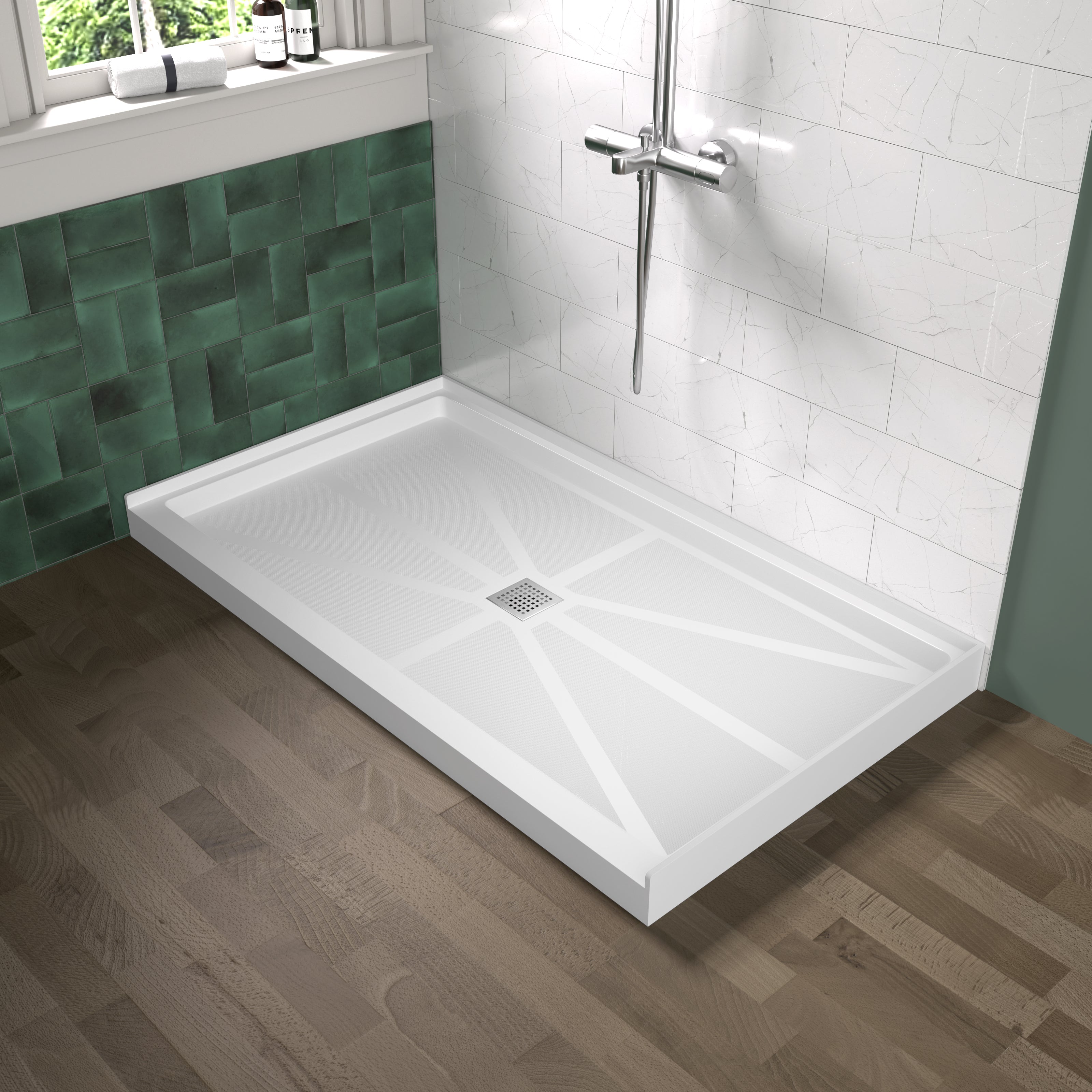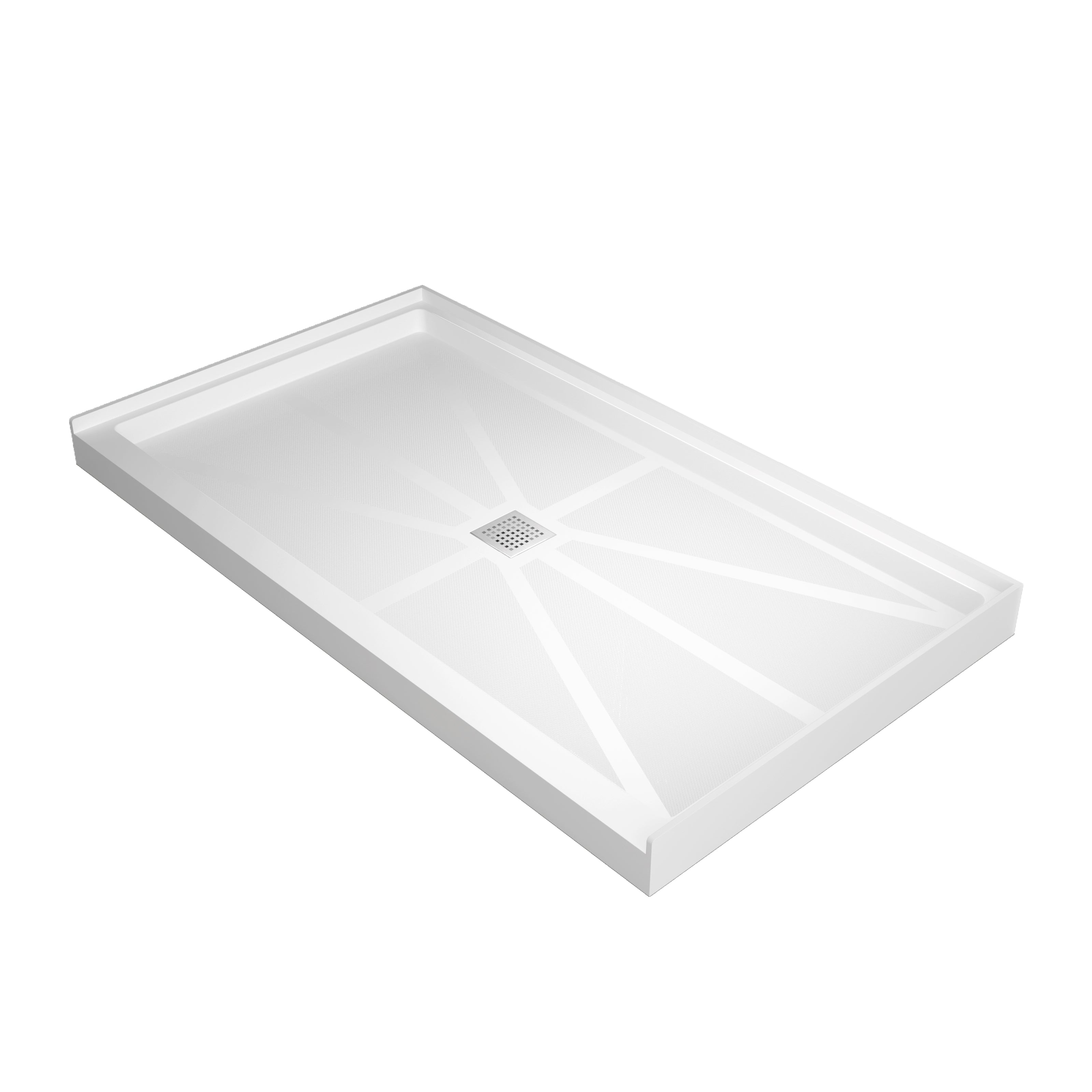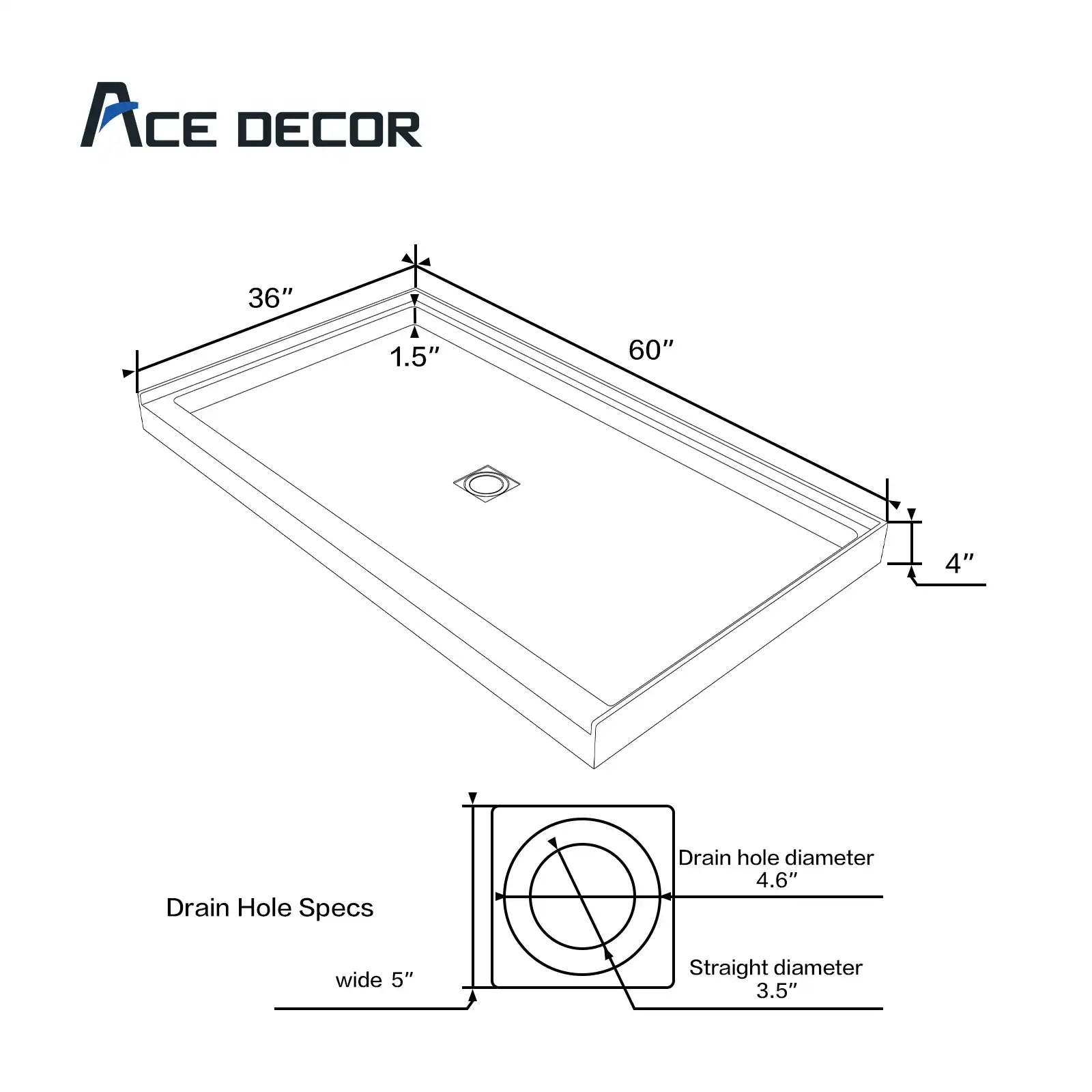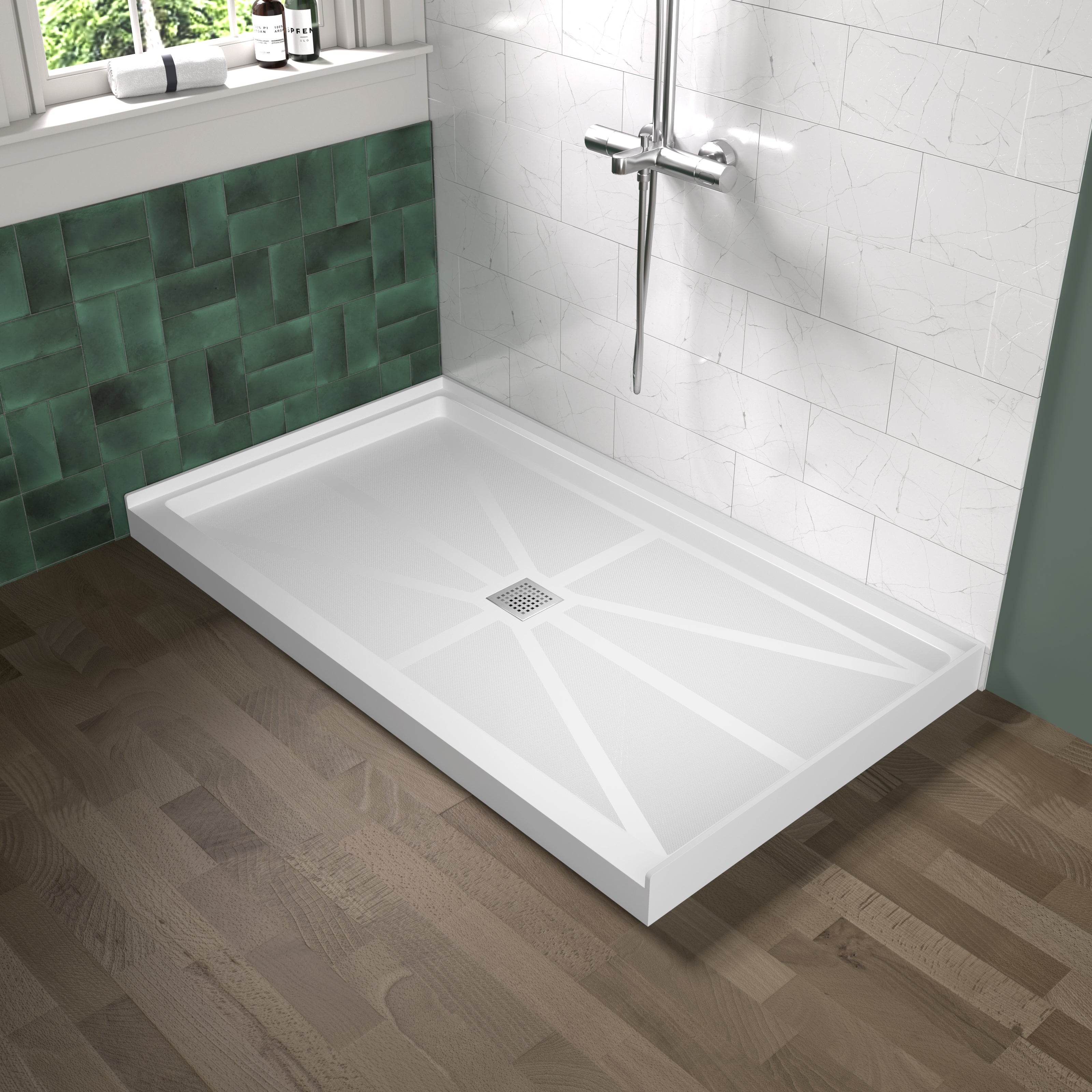Shower pans play a crucial yet often underestimated role in both the functionality and design of modern bathrooms. They serve as a base for water drainage and stability for the structure and come in multiple materials. These acrylic, fiberglass, and advanced composite materials (like SMC) shower pans are prevalent today due to their lightweight properties and affordability, metal shower pans remain a unique and compelling option for specific users.
With a legacy rooted in cast iron and copper craftsmanship, metal pans offer exceptional durability, thermal insulation, and a sense of timeless quality. This article explores how these traditional materials compare to modern alternatives, examining their strengths, limitations, and the key factors to consider when selecting the right shower base for your project.
Table of Contents:
- Modern Shower Pan Materials: Acrylic, SMC, and Beyond
- What Are Metal Shower Pans? A Look at Cast Iron Construction
- Copper Shower Pans: Luxury Meets Durability
- Metal vs. Modern: Key Advantages and Disadvantages
- Choosing the Right Shower Pan: Practical Buying Advice
- Conclusion
- FAQ: Expert Answers to Common Questions About Metal Shower Pans
Modern Shower Pan Materials: Acrylic, SMC, and Beyond
For the past decades, both acrylics and SMC have been popular materials when it comes to shower pans used in both residential and commercial applications. Their popularity is not accidental — these materials cater to the evolving needs of today consumer.
Acrylic shower pans are made from vacuum-formed sheets of acrylic that are reinforced with fiberglass. They are lightweight, easy to install, and resistant to chipping and cracking. One of their biggest selling factors is that they are cheap and come in all different types and sizes. Plus, they are easy to clean due to their smooth surfaces and can even provide anti-slip texturing as an aspect of safety.
SMC (Sheet Molding Compound) is a fiberglass-based composite material that is molded under heat and pressure. It offers a balance between rigidity and weight, making it ideal for shower bases. SMC shower pans are more robust than acrylic, with higher impact resistance and dimensional stability.
What Are Metal Shower Pans? A Look at Cast Iron Construction
Cast iron has been used as a material for bathroom design for many decades, especially during the first half of the twentieth century. This ultra-durable and solid feel material was used to make many vintage tubs and shower bases.
To create a cast iron metal shower pan, molten iron is poured into a mold and coated with porcelain enamel after it cools. The result is a product that can withstand almost any normal use. These pans are scratch-resistant, dent-proof, and excellent at retaining heat — providing a warm, comfortable shower floor even in colder climates.
Despite their impressive durability, cast iron shower pans are not without drawbacks. They are very dense and heavy, requiring reinforced subfloors or additional framing during installation. That adds on labor costs and makes them less practical in some remodeling situations, like upper-floor bathrooms. Additionally, installing shower doors that require drilling into the pan for lower guide tracks can be challenging due to the material's hardness.
Another consideration is price. Cast iron pans are generally more expensive than their acrylic or fiberglass counterparts, making them a premium option. However, for those prioritizing longevity and a solid underfoot feel, cast iron remains one of the most robust options available among metal shower pans.

Copper Shower Pans: Luxury Meets Durability
While cast iron is known for strength and practicality, copper shower pans elevate the shower experience into the realm of luxury. Copper is a non-ferrous metal that has been used in architecture and plumbing for centuries. When applied to bathroom fixtures, it adds warmth, richness, and a distinctive patina that changes with time.
The color and texture of copper is one of its biggest aesthetic benefits. Copper can lend any bathroom a unique high-end look ranging from gleaming rose-gold tones to vintage rustic browns. It is also hygienic for use in wet environments due to its antimicrobial properties.
Copper has a lot of inherent similarities with cast iron functionally — durable, heat retaining, and still a lifetime piece. But it is also softer and more malleable. Also, like cast iron, copper pans are pricey and need to be installed by professionals.
For these reasons, copper metal shower pans are most appropriate for homeowners who want the unique look of copper shower pans and are okay with spending top dollar for the highest quality craftsmanship. They’re less common in mass-market installations but continue to gain popularity among custom designers and renovators looking for a distinctive touch.

Metal vs. Modern: Key Advantages and Disadvantages
To understand whether metal shower pans are the right choice, it helps to compare them side by side with modern materials:
| Feature | Metal (Cast Iron / Copper) | Acrylic / SMC |
|---|---|---|
| Durability | Extremely high; lasts decades | Moderate to high |
| Weight | Very heavy; requires reinforced support | Lightweight; easy installation |
| Aesthetics | Unique, classic, luxurious | Sleek, modern, minimal |
| Maintenance | Low; resistant to scratching and staining | Easy to clean but may discolor over time |
| Price | Premium pricing | Budget-friendly |
| Thermal Retention | Excellent | Moderate |
| Installation Flexibility | Limited due to weight and hardness | Highly flexible |
This comparison shows that metal shower pans offer exceptional performance in certain categories but may not be suitable for all homes or projects. Understanding these trade-offs is essential for making an informed decision.
Choosing the Right Shower Pan: Practical Buying Advice
When considering between metal shower pans and modern materials, here are some things to consider:
-
Design Vision: If you’re aiming for a vintage, industrial, or luxurious look, cast iron or copper can serve as an architectural centerpiece.
-
Installation Environment: Metal pans may be impractical for second-floor bathrooms or buildings with structural limitations.
-
Budget: While metal options have superior longevity, their upfront cost and installation complexity may not suit all renovation budgets.
-
Longevity Goals: If you want a pan that can last for decades with minimal upkeep, metal pans excel in durability.
-
Comfort and Feel: For some users, the solid, heat-retaining nature of metal pans is more comfortable and reassuring than lightweight alternatives.
Ultimately, modern materials like acrylic and SMC offer great value, especially given advances in resin technology and structural reinforcement. For most users, these options provide a balance of performance, aesthetics, and affordability. However, for those seeking a distinctive and long-lasting solution, metal shower pans remain a compelling choice.

Conclusion
Although modern materials like those commonly used to make shower pans today are popular among builders and homeowners alike for their ease of use and more appealing price point, metal shower pans have some unique qualities that make them worth considering. The added durability, beauty and timelessness of finishes like cast iron and copper is a draw for homeowners who think of their bath as more than just a functional place.
Choosing the right shower pan ultimately comes down to balancing aesthetics, performance, and practicality. Whether you're designing a luxury en suite or upgrading a functional family bathroom, understanding your material options ensures you make a decision that will stand the test of time.
FAQ: Expert Answers to Common Questions About Metal Shower Pans
Q1: Are metal shower pans more durable than acrylic ones?
A: Yes. Cast iron and copper metal shower pans typically last much longer than acrylic. They are also more resistant to impacts and scratches.
Q2: Can I install a metal shower pan on an upper floor?
A: Due to their weight, metal pans need reinforced subfloors and professional installation. Always consult a contractor to assess feasibility.
Q3: Will copper metal shower pans change color over time?
A: Yes. Copper develops a natural patina that can shift from bright to darker tones. Some homeowners embrace this aging process, while others use sealants to preserve the original finish.
Q4: Are metal shower pans compatible with sliding glass doors?
A: Installation is possible but may be more challenging. Drilling into cast iron or copper for track mounts requires specialized tools and may void warranties.
Q5: What’s the main reason someone would choose a metal shower pan over a modern one?
A:
Ground Rules: Picking the Best Shower Base for Your Space
Solid Stone Shower Base Maintenance Guide: Cleaning, Anti-Slip & Mold Prevention
Shower Base vs Tile: Which One Will Save Your Wallet and Your Sanity?












